#80's children's films
Text
Man every time I wanna try to reblog that 80s movie meme post I realize I don’t think I have an 80s movie that’s just like My Movie everything that comes to my brain turns out to be 90s
#need to watch more stuff but also I hate watching things#What do you mean 1994 movie children of the corn isn't an 80s film . is now bc I said s
0 notes
Text
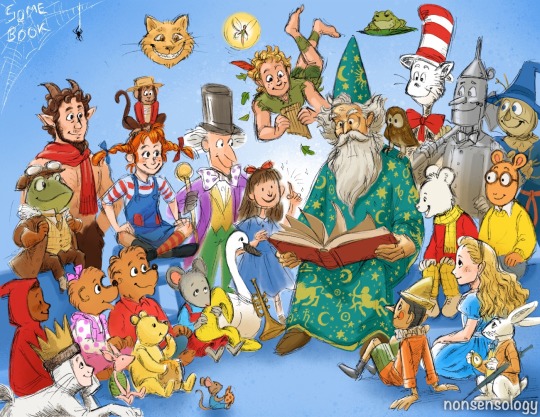
This was supposed to just be a rough sketch, but then I started getting really invested in it.
I hadn't initially intended to include so many picture book characters, but the nostalgia was overwhelming. Does anyone remember the animated short films produced by Weston Woods? My local library used to have a bunch of them on the Scholastic VHS tapes from the late 90s. (I know some shorts were released on the Children's Circle VHS tapes back in the 80s (🎶 Come on along! Come on along! Join the caravan!), and some were packaged in Sammy's Story Shop in 2008.)
Characters:
Max, from Where the Wild Things Are, written and illustrated by Maurice Sendak
Peter, from The Snowy Day, written and illustrated by Ezra Jack Keats
Brother Bear and Sister Bear, from The Berenstain Bears series, written and illustrated by Stan and Jan Berenstain
Pooh and Piglet, from the Winnie-the-Pooh books, by A. A. Milne, illustrated by E. H. Shepard
Owen, from Owen, written and illustrated by Kevin Henkes.
Mouse, from If You Give a Mouse a Cookie, by Laura Joffe Numeroff, illustrated by Felicia Bond
Louis, from The Trumpet of the Swan, by E. B. White
Mr. Toad, from The Wind in the Willows, by Kenneth Grahame, based on the illustrations by E. H. Shepard
Mr. Tumnus, from The Chronicles of Narnia series, by C. S. Lewis
Pippi and Mr. Nilsson, from the Pippi Longstocking books, by Astrid Lindgren
Willy Wonka, from Charlie and the Chocolate Factory, by Roald Dahl, based on the illustrations by Quentin Blake
Matilda, from Matilda, by Roald Dahl, based on the illustrations by Quentin Blake (with an homage to the Mara Wilson movie)
Peter Pan and Tinker Bell, from Peter Pan, by J. M. Barrie
Merlin and Archimedes, from The Sword in the Stone, by T. H. White, based on the illustrations by Dennis Nolan
Pinocchio, from Pinocchio, by Carlo Collodi, based on the illustrations by Enrico Mazzanti
Alice, White Rabbit, and Cheshire Cat, from Alice's Adventures in Wonderland, by Lewis Carroll, illustrated by John Tenniel
Rupert Bear, from the Rupert stories, created by Mary Tourtel and continued by Alfred Bestall, John Harrold, Stuart Trotter, and others.
Arthur Read, from the Arthur series, written and illustrated by Marc Brown
Tin Woodman and Scarecrow, from the Land of Oz series, by L. Frank Baum, based on the illustrations by W. W. Denslow and John R. Neill
The Cat in the Hat, from The Cat in the Hat, written and illustrated by Dr. Seuss
a frog on a flying lily pad, from Tuesday, written and illustrated by David Wiesner
Charlotte, from Charlotte's Web, by E. B. White
#children's books#children's literature#where the wild things are#the snowy day#berenstain bears#winnie the pooh#kevin henkes#if you give a mouse a cookie#e b white#the wind in the willows#pippi longstocking#the chronicles of narnia#roald dahl#peter pan#sword in the stone#pinocchio#rupert bear#arthur read#alice's adventures in wonderland#the wonderful wizard of oz#cat in the hat#david wiesner
296 notes
·
View notes
Text
Appendix D: Some Pig/One More Final
The first three posts in this series are here.
Undertale was a slightly postmodern children's fantasy movie produced by Jim Henson's Creature Shop in the '80s. Noah Hathaway played the protagonist, Frisk, who went on a long quest to escape from a magical prison inside Mt. Ebott; Frisk's father had thrown them into the mountain, known to be full of monsters, in an attempt to kill them. However, it's suggested that as a human, Frisk is inherently more of a protagonist than a monster can be, and has a vague sort of magical power over them. Toriel's death, which Frisk accidentally causes early in the movie, is commonly listed as a Peak Sad Childhood Moment.
George Orwell wrote The Writing In The Web, a political fable about a cult started by a well-meaning spider. E. B. White wrote Snowball's Farm, a whimsical children's tale about a farm whose animals decide to take over.
Infamously, Emmanuel Goldstein's monologue fills dozens of pages, takes at least three hours to read aloud, and brings the plot of Ayn Rand's 1984 to a screeching halt.
Short story collections and anthologies often keep the same title, author, and spirit, it's just the stories that are swapped out. For example, classic episodes of Rod Serling's The Twilight Zone include A Wonderful Life, The Secret Life Of Walter Mitty, Miracle On 34th Street, and The Sixth Sense. 1983's The Twilight Zone Movie includes segments based on classic episodes Eternal Sunshine of the Spotless Mind (directed by John Landis and given anti-war themes), Cocoon, The Poltergeist, and In Search of the Twelve Monkeys (the original starred a young William Shatner). Candle Cove is an episode of Black Mirror.
League of Extraordinary Gentlemen was a 1999 Ben Stiller comedy about a team of low-rent superheroes who theme themselves after public domain characters because they cannot afford licensing fees. The film was well-reviewed, but a box office bomb. It was actually the first film to use Smash Mouth's One Week - the One Week music video is actually cross promotion with League of Extraordinary Gentlemen - and it would remain the film most associated with the song until Dreamworks' Happily N'Ever After hit theaters two years later.
The Amazing Digital Circus was a virtual pet game and toy line that struck when the iron was hot on that niche, before being bought out by Hasbro and rebooted a few times in different forms and mediums. Lauren Faust created a long-running television cartoon of it that was a huge smash hit with fandom culture despite the show's clearly very young target audience. The property's canon is all very light kiddie fare; the scariest thing about The Amazing Digital Circus is that for a brief and touchy stretch of time in the early 2000s, it was owned by the Peoples Temple, which was seriously considering turning it into a recruiting platform.
Your cringe unpublished works that you gave up on were almost certainly swapped around with other people's cringe unpublished works that they gave up on. There's lots of upwards and downwards mobility to the scramble, but not usually that much. Exceptions are very rare - like a beggar suddenly being made king, or a god being reincarnated into an ant - but they do occasionally happen. For example, what you know as the land of Oz exists only in the head of a young Milwaukee stoner, who suddenly came up with the idea for an epic graphic novel one day in the 2010s while sitting on the bus, and spent a couple of years absolutely convinced she would eventually make it. (She cannot draw.) Conversely, L. Frank Baum's children's fantasy series, Enormia, which has been adapted and reimagined many times, most notably as audiences' introduction to color film, exists in your world only as a different Milwaukee stoner's overly elaborate backstory for his jerkoff sessions. This kind of thing is much more the exception than the rule, and even such exceptions are almost always much smaller in scope - an obscure stillborn project getting swapped around with an obscure out-of-print novel, or an obscure direct-to-video z-movie.
The True Detectives forum and its many schismatic spinoffs, all of which are devoted to discussing mystery fiction, host literally thousands of Wind fanfics. Many of the writers - perhaps most of them - have never actually read Wind, just other fanfiction of it; next to none of the fics are worth reading. Most Wind fics reuse the original protagonist, Rorschach, but treat him as a generically relatable blank slate. The most common fic format by far is the "altdunnit", a form of what-if scenario in which the mystery that sets off Wind's plot is different in some way.

Rorschach is held by a substantial portion of the fandom to be an egg (a trans woman who has not realized it yet). Wildbow has never endorsed this interpretation, and it doesn't seem to be much on his radar. In recent years, the trans Rorschach portion of the fandom has grown; they don't tend to look especially kindly on Warn, much of which Wildbow wrote as a response to fans (like those on the True Detectives forum) he felt had been too inclined to take Rorschach's side in Wind. Flame wars over Warn's content were constant throughout its serial publication, and made it easily the rockiest experience of Wildbow's writing career.
Some noteworthy and relevant podcasts include Jonathan Sims' The Dresden Files, the Ranged Touch Network's Scott Pilgrim Made The World, Doof Media's Winding Down (later Warning Down), and the McElroy family's The Adventure Zone (an actual play podcast which has currently had three major campaigns, two anthology series, and various one-shots). Film Reroll is still an actual play podcast that runs the basic setups of movies (and occasionally other media) as short tabletop campaigns; occasionally, their version of a movie will be much closer to ours than it is to the version of the movie in their own universe.
Xenobuddy was an early childhood public access show, originally created for the BBC in the late 1990s but later aired internationally. The title character is a small alien puppet who lives on a futuristic spaceship staffed by children (who speak a vague conlang akin to a dollar store Esperanto). At the end of every episode, it gets lost and is found, usually by (harmlessly) bursting out of one of the children. It was very popular with its target audience and much loathed by parents. Edgy ironic fanart depicting the titular Xenobuddy as some kind of dangerous parasite abounds.
Static is a supernatural slasher franchise created by Wes Craven, with the first film, also simply titled Static, released in 1984. The movies concern a group of gibbering neotenous ogre-fae who wake up in the modern day after a long sleep, incorporate televisions into their bodies, and start eating people by sucking them into hellish pocket dimensions. The Screen-Guts collectively are probably in the top five antagonists most people think of when they think of slasher horror.
Toby Fox's ROSEQUARTZ is especially known for its meta take on video game morality systems. The game has a mission-based structure; throughout it, the player is encouraged to take on a pacifist playstyle, championed by the player character's late mother, the title character. However, the Crystal Gems give the player enough autonomy that you are entirely able to take a much more violent tack; doing so has a rippling effect on the game's writing in countless immersively-integrated ways. If the player goes out of their way to be as murderous as possible - the so-called "genocide route" - the differences from the main route grow much more extreme, and rather than gaining allies, you start to lose them, as the Crystal Gems realize what you're doing and one by one turn against you. If you manage to shatter Garnet - it's the hardest and most iconic fight in the game, Megalovania is playing, her Future Vision gets used for all it's worth - then you use your knife to slash at the cosmos, erasing Earth, Homeworld, and everything else. This, Toby Fox is saying, is apparently all you want out of a video game - another toy to break.
Warner Bros still did Space Jam with Michael Jordan and the Looney Tunes, it's just that the Looney Tunes in question were Mickey Mouse and friends. They also still did a second one with LeBron James, which was, by God, somehow worse. They put Ms. Frizzle in it.
Walt Disney made his squeaky clean reputation on the back of adaptations of things like Rudyard Kipling's adventure novel The Call of Cthulhu, P. L. Travers' Thomas the Tank Engine, and Erich Kästner's feel-good coming-of-age kidnapping tale about the power of perseverance, Lolita, originally done with Hayley Mills and later remade with Lindsay Lohan.
Nabokov's extremely controversial literary classic that has defined the idea of the unreliable narrator is Father's Trap, from the perspective of a man who plots to obtain custody of both of his daughters for nefarious purposes. Most publishers ignored Nabokov's instructions not to depict the twins, Lisa and Lottie, on the cover. Stanley Kubrick and Adrian Lyne have directed mediocre film adaptations, and songwriting team Lerner and Loewe did a musical that was a legendary flop.
The Japanese fashion movement is Gothic Pollyanna, after an otherwise-forgotten series of penny dreadfuls about a cute, cheery, rules-minded young girl who is, despite appearances, an insane criminal. Minor character Bonesaw in Alan Moore's Worm Turns also clearly hearkens back to the Pollyanna stock character.
The DEA was a prime-time soap opera about the ongoing "war on drugs"; it ran for eleven seasons from 1982 to 1993. Its plot focused on federal agents working at the Drug Enforcement Administration office in Albuquerque, New Mexico, and especially partners Hank Schrader and Steve Gomez and their families. It is mostly remembered today for its downer ending (in which the treachery of late-show villain Walter White, or "Heisenberg", gets the leads killed, and he escapes from justice), and for its far-more-acclaimed spinoff series Better Call Saul, which also ran for eleven seasons from 1993 to 2004, functioning as a prequel, midquel, and sequel to The DEA.
Between The DEA and Better Call Saul, Kelsey Grammer played crooked lawyer Saul Goodman for twenty consecutive years of primetime TV, first as featured comic relief and later as a leading man. (He also guest-starred on the mostly-forgotten Mall Cop, establishing that it, too, was set in the world of The DEA and Better Call Saul.) Better Call Saul won more than a dozen Primetime Emmys. Peri Gilpin received several of these for her performance as Kim Wexler.
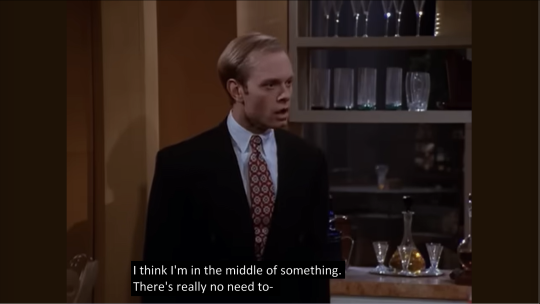
St. Elsewhere was a film written and directed by M. Night Shyamalan in the late 1990s; it was highly acclaimed and successful, and established Shyamalan in the public eye as a skilled auteur with an affinity for twist endings. The film's final scene reveals that its main setting, St. Eligius Hospital, exists entirely within the imagination of an autistic boy, Tommy Westphall, as he gazes into a snowglobe. The so-called "Tommy Westphall Universe Hypothesis", which posits that this same twist applies to most of fiction due to a network of crossovers, was invented by a Saturday Night Live sketch shortly postdating the film's release, in which an amnesiac Charles McGill (from Better Call Saul) wakes up in St. Eligius, attended to by a cast of characters who are more concerned with their own nonexistence.
After rising to prominence as a writer, storyboarder, and composer for Pendleton Ward's Science Time (where she established the Summer/Jessica relationship that would come to define later seasons), Rebecca Sugar got to make her own cartoon, Henry Ichor. Set in a recently post-apocalyptic but strangely cheerful world, Henry Ichor concerns a young teenage boy who is conscripted as a mech pilot due to his rare and innate ability to link to the powerful Evangelion mecha. (His preferred Evangelion is eventually revealed to be a form of his late mother, the reason he can do this in the first place.) Henry turns out to be a vital asset in protecting humanity from the monstrous "Angels" that frequently threaten it, and is surprisingly emotionally mature for his age. However, the adults around him (especially his father, Gennady) frequently push him too far, especially considering his generally noncombative and pacifistic nature. There is much interpersonal drama and much singing about it, with a very vocally trained cast. After several seasons of slow buildup, the show was forced to suddenly rush to its ending in only a few (infamous) episodes after an arc where Henry had a romance with an Angel in male human form. Henry Ichor The Movie and an ensuing miniseries, End Of Henry Ichor, helped bring the show to a more thematically satisfying conclusion.
Although he has played a creative or consultant role in many animated projects, Alex Hirsch is best known for the one he was actually the showrunner for, Disney Channel's smash hit Sunnydale. Focusing on a small California town constantly plagued by supernatural threats, Sunnydale generally followed a simple monster-of-the-week format, but kept audiences on the hook with teases at a deeper underlying mystery. The show almost didn't get a season two, as Hirsch found working with Disney very tiring, but he was eventually persuaded; season two ran through the rest of Hirsch's ideas at a faster pace, and concluded the show with the leads graduating from Sunnydale High.
For a brief historical moment, Daron Nefcy's show, Ender vs. the Space Bug Army, looked like it would become the successor to Sunnydale, keeping Disney Television Animation prestigious after Sunnydale ended. However, though Ender drew in a big crowd, and lasted almost twice as long as Sunnydale, it was not ultimately as well-received. EvtSBA is a children's space opera, wearing its Starship Troopers (Joss Whedon) inspiration on its sleeve, but also clearly copying some (superficial) notes from Philip Pullman. Set in a future where mankind has come into violent conflict with bug-like aliens, the show follows unbearably smug boy supergenius Ender as he is sent to military school to prepare for interstellar warfare. The show has an extremely cutesy and hyperactive tone; typical filler episodes include the one (generally taken as meta about fandom drama) in which Ender's siblings' futuristic internet arguments prove instrumental to the survival of the human race. Later seasons get a bit more serious, but focus heavily on shipping. The show is infamous for its ending, in which Ender, for his final exam, destroys the Formics' home planet and releases a psychic signal that eradicates the Formic race. Although the show explicitly notes that this includes many individual Formics who we have previously known as sympathetic characters, it is nonetheless played as a happy ending in which a hostile colonial power is defeated. Ender has ended the war; he has beaten the Space Bug Army.
"Meugh-Neigh. 'Meugh' like the cat, 'neigh' like the horse."
"Does it mean something?"
"No answer; none at all."
Orson Scott Card is an extremely prolific author of speculative fiction. Although it isn't as close to his heart as the Steel Gear series, in which he got to flex his military sci-fi muscles and allegorically retell stories from his faith, he is undoubtedly best known for Ishtar's Curse. Initially a short story and later expanded into a full novel, the plot concerns young Princess Ishtar, or Star, heir to the heathen fairy kingdom of Meugh-Neigh. (In later novels, she changes her name to Bethlehem Diaz, or Beth.) Spoiled and destructive but magically talented, Star is sent to twentieth century Earth so she can develop the wits and the strength of character to be a viable wartime leader for her people - or at least so she can be kept out of the way. After several years of personal growth and magical misadventures with companions she met on Earth, a more grounded Star devises a spell to erase the magic that makes up the bodies of most of her throne's enemies. This plan works, and merges Meugh-Neigh into the Earth as a small and ordinary European country. However, though her subjects are eager to celebrate her for this, Star is devastated when she realizes that she has killed trillions of innocent spirits, and, seeking to atone, she takes on the title of Speaker for the Dead (also the title of the book's first sequel). Although it's frequently ranked highly in lists of fantasy novels of the twentieth century, Ishtar's Curse has received some harsh criticism, with the standard line being that Star is an idealized fantasy of a repentant Hitler figure, and that the text presents excessive justifications for her actions. The story has also been called a reactionary response to Wilde's The Little Mermaid. After more than twenty years, a film adaptation of Ishtar's Curse was released in 2009, starring Dakota Fanning, to mixed reviews. The box office took a further hit due to a boycott campaign, after Card's views on homosexuality (and, relatedly, his membership in the LDS Church) became widely known. In the end, it lost the studio a lot of money.
Hideaki Anno is best known for the classic smash hit anime he made for Studio Gainax, Einstein Goliath Nestorian, a psychologically intense deconstruction of martial arts shonen like Yoshiyuki Tomino's Dragon Ball. Einstein Goliath Nestorian concerns a mystery man known only as Saitama, who finds that he has become dissatisfied with life and alienated from the world after only three years of training have enabled him to easily surpass any physical challenge. The original series is known for its sudden, surreal, and clearly budget-driven ending, although this was quickly alleviated with a similarly surreal but more definitive finale movie. Although many Western anime fans often think of Einstein Goliath Nestorian as pretentious and ultra niche, it was actually a huge mainstream hit in Japan, with a colossal franchise of adaptations, merch, and spinoffs (notably including a series of Retrain films, which began as extremely close shot-for-shot remakes of the original series but wound up spiraling into a very different updated timeline).
Previously most noteworthy for his 2003 visual novel Oreimo, Gen Urobuchi was tapped by Shaft for their extremely successful and acclaimed anime Ohayou Hana!, hailed as a deceptively dark deconstruction of the teen idol genre. The plot concerns a girl, Saionji Mayuri, who leads a double life, being of little note at school, out of costume, but spending much of her time as #1 idol Hana. Her mental stability begins to deteriorate as she realizes that the adults in her life - especially her father, himself a former idol - have groomed her to serve as a drugged and hypnotized propaganda mouthpiece for a shadowy conspiracy. She winds up in the worst of both worlds as her ensuing breakdown, and her handlers' response to it, destroys both of her lives and brings ruin to those she cares about. In addition to the popularity of the actual anime, many of its songs became decontextualized J-Pop hits. The idol anime genre would then receive a glut of edgy lesser imitators, like Love Live: School Idol Project, Cheetah Girls, and magical girl fusion Symphogear. Although the original Ohayou Hana! was a self-contained twelve-episode story, it received a sequel movie shortly thereafter, Ohayou Hana! Rebel!, which ended on a cliffhanger that has still not been resolved over a decade later. The upcoming Ohayou Hana! MK Ultra! is expected to get things back on track. An abridged series originating on 4chan, focusing on cropped screencaps from Ohayou Hana!, called the title character "Miss Ohio", producing the memetic tagline "being Ohio is suffering".

Zack Snyder first came up with the idea for Madoka around 2000, a long time before he'd actually get to make it; he put the project on hold in 2006 to make his adaptation of Worm Turns. He developed the idea with his wife Deborah and a cowriter, Steve Shibuya. Inspired by the Disney Princess phenomenon, as well as Naoko Takeuchi's Pretty Cure (one of the few anime that had already become a hit in the States), Snyder wanted to tell a coherent story about fights between magical girls who could make anything happen, who could make any fantastical world or visual appear. In Snyder's film, we follow Madoka Kaname, a teenager attending a Catholic school in Los Angeles. Madoka and her friends are approached by a strange young woman who goes only by "Mommy", and her animal companion (a CGI-ed up squirrel-cat thing), QB. They offer to make the teens into "magical girls", granting them one wish each in exchange for a life devoted to spiritual warfare. (Another mysterious new girl, Lilly, urges them not to take the deal in the strongest possible terms.) This turns out to be a scam; QB is pitting the magical girls against one another for his own reasons, and in the end, every magical girl and her wish gets corrupted. Despite much of the film's plot being a horrific bloodbath - the MPAA demanded a lot of cuts to get it down to a PG-13 rating - there is a happy ending; Madoka finally makes her own wish and uses it to topple QB's whole system. Madoka isn't often discussed nowadays but it was a major discourse bomb when it came out in 2010, alternately being called misogynistic Orientalist trash and a subversive feminist masterpiece. Snyder, for his part, often notes that QB is intended as an allegory for exploitative forces within the entertainment industry that treat young women as disposable resources with an expiration date; this is already clear to anyone who's watched the film, which is not exactly subtle in its symbolism. He also explains that the film sexualizes the girls in an effort to shame the audience, to get people to understand that they are objectifying the characters in the same way that QB does. The soundtrack's got a really cool ethereal cover of Nine Inch Nails' King Nothing on it, which is probably the most remembered part of the film today.
Selena Gomez became a star by playing Violet Parr on Disney Channel's superhero sitcom The Incredibles. While the show was initially a very throwaway villain-of-the-week affair whose leads had to keep their powers hidden from the public and their caped escapades secret from the government for self-explanatory comes-with-the-genre reasons, it would eventually unfold that the show was set in something of an X-Men-style dystopia where superheroism had been outlawed and supers oppressed by the government as a potential societal fifth column.
Brad Bird directed one of Pixar's most celebrated films, Wizards of Waverly Place; it was Pixar's first film with a predominantly human cast. Disney was hungry for a fantasy property after losing a bidding war for the Luz Noceda rights. It had strong populist anti-eugenic themes, with an elaborate wizarding hierarchy of antagonists who seek to remove the Russo family's magic as part of an effort to curb wizard overpopulation. The sequel came more than a decade later, and wasn't nearly as good.
In addition to Worm Turns, Alan Moore is notable for the heavily metafictional comic Pagemaster, about a boy, Richard, who finds a magical library that contains all stories that have ever been or could ever be told; he becomes lost and imperiled in assorted pieces of historically noteworthy literature (initially ones in the public domain, though later volumes would start using legally safe serial-numbers-filed-off versions of modern stories). The 2003 film, in which Sean Connery played the librarian in one of his last film roles, is widely regarded as a terrible, deeply-toned-down adaptation that didn't grasp the tone or themes of the original story at all; it only covered the first half of the first volume, in which Richard meets "genre spirits" who wish to sort all stories into rigid categories. In a later volume, Pagemaster Millennium, an aged Richard Tyler, who has since taken on the mantle of librarian himself, meets a teenage girl, heavily implied to be Luz Noceda, who has also become lost in the library. She has become corrupted by an eldritch book, or "Necronomicon", written by "the Wrong Author", heavily implied to be the devil (and/or Hugo Astley, an Aleister Crowley caricature from W. Somerset Maugham's The Winged Bull). Flushed with demonic power and enraged by what she's become, a monstrous Luz tears through the library in a blaze of hellfire, seeking to destroy all of literature and the world. It is only through the intervention of the Fat Controller - heavily implied to be God - that Luz is defeated; he mercifully erases her by hitting her with a train, and laments what she became.
#queued post#the scrambled timeline#I tinkered around with the ordering of these entries so much that I guess this is a scrambled post for the scrambled timeline#credit to hieronymous-botch for the Alex Hirsch's Sunnydale idea#credit to Lorelei for the Orson Scott Card's Steel Gear idea
101 notes
·
View notes
Text
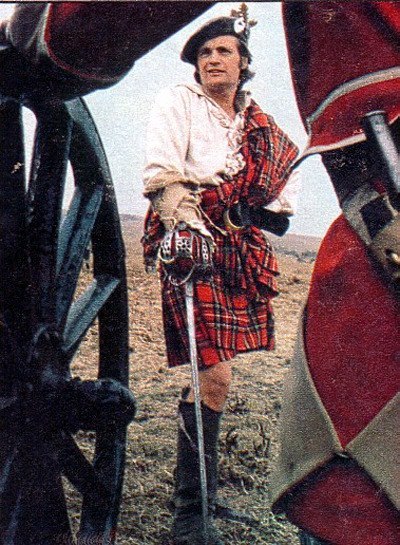
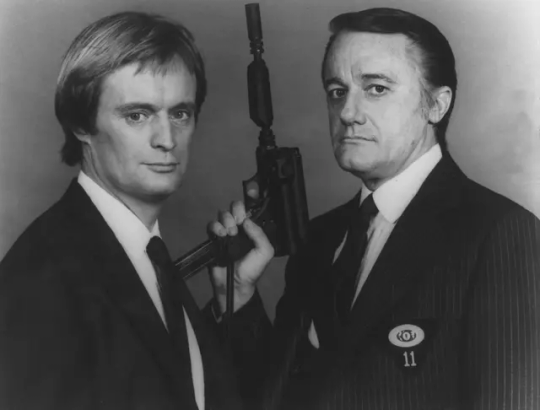
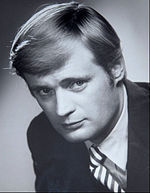
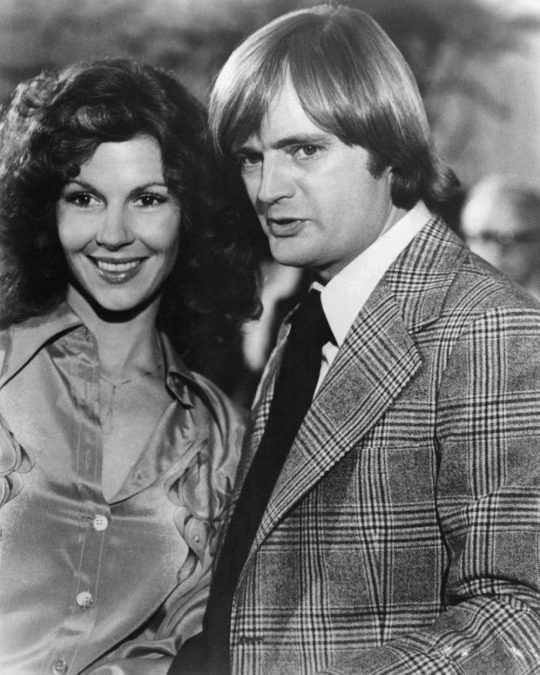
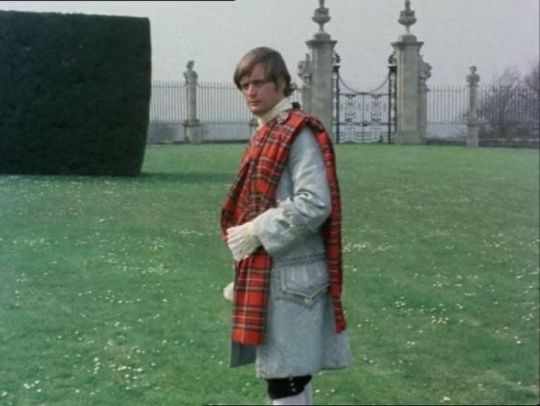
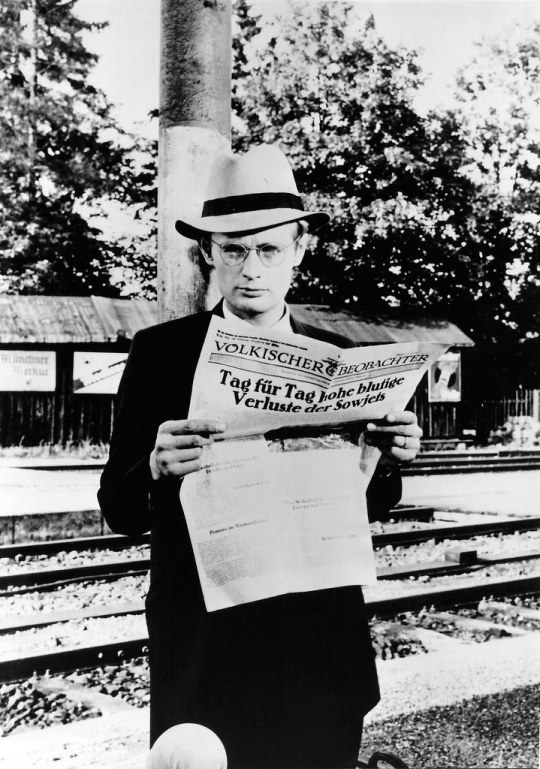
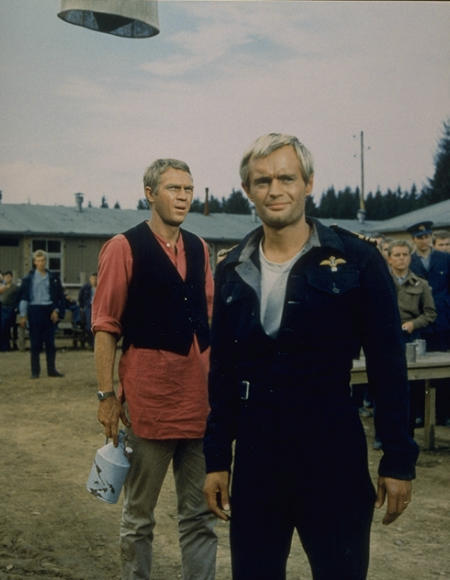
Happy 90th Birthday Scottish actor David McCallum.
Born as David Keith McCallum, Jr on this day 19933 in Maryhill, Glasgow, the second of two sons of Dorothy Dorman, a cellist, and orchestral violinist David McCallum Sr. When he was three, his family moved to London for his father to play as concertmaster in the London Philharmonic Orchestra. Early in the Second World War, he was evacuated back to Scotland, where he lived with his mother at Gartocharn by Loch Lomond.
McCallum won a scholarship to University College School, a boys' independent school in Hampstead, London, where, encouraged by his parents to prepare for a career in music, he played the oboe.In 1946 he began doing boy voices for the BBC radio repertory company. Also involved in local amateur drama, at age 17, he appeared as Oberon in an open-air production of A Midsummer Night's Dream with the Play and Pageant Union. He left school at age 18 and was conscripted, joining the 3rd Battalion the Middlesex Regiment, which was seconded to the Royal West African Frontier Force.In March 1954 he was promoted to Lieutenant. After leaving the army he attended the Royal Academy of Dramatic Art (also in London), where Joan Collins was a classmate.
David McCallum’s acting career has spanned six decades; however, these days he is best known for his starring role on the police procedural NCIS as medical examiner as Dr. Donald “Ducky” Mallard. I first really remember McCallum for his role in another US show, The Invisible Man which ran for 13 episodes in the 70's. McCallum by then was a veteran of many TV and Film roles, starting in the 50's including Our Mutual Friend and The Eustace Diamonds, in the 60's he was in several ITV Playhouse shows before moving across the Atlantic to take roles in The Outer Limits and his big break as Illya Kuryakin in several incantations of The Man from Uncle.
His most notable films were The Greatest Story Ever Told as
Judas Iscariot and of course Ashley-Pitt 'Dispersal' in The Great Escape.
As well as the aforementioned Invisible Man in the 70's he took time to pop back over to our shores to star in two quality series, as Flt. Lt. Simon Carter in Colditz and Alan Breck Stewart in an adaption of Robert Louis Stevenson's, Kidnapped.
The 80's saw him team up with the lovely Joanna Lumley in Sapphire & Steel and several guest roles in the likes of The A Team, Hart to Hart and Murder, She Wrote as well as a one off reprise of Illya in the TV movie The Return of the Man from U.N.C.L.E.: The Fifteen Years Later Affair.
The 90's saw David in Cluedo and Trainer on our TV screens over here and American science-fiction series VR-5 in the states..
During the last 20 years or so he has been in the kids TV show, Ben 10: Omniverse as the voice of Professor Paradox and of course Donald Horatio "Ducky" Mallard in over 350 episodes of the popular NCIS.
David has been married twice. He married his first wife Jill Ireland in 1957. They met on the set of the movie Hell Drivers. Together, they had two sons and a daughter, Paul, Jason and Valentine, with Jason being the only one who was adopted. In 1963, David introduced Jill to his co-star on The Great Escape, Charles Bronson, and she left David and married Charles in 1968. In 1967, David married Katherine Carpenter and they have two children together, a son Peter and a daughter, Sophie. He and Katherine currently live in New York.
In NCIS since 2018, Ducky, played by McCallum, has appeared in fewer episodes. avid McCallum explained that appearing in fewer episodes will allow him to see more of his family, which includes his wife, children, six grandsons, and their cat, Nickie. According to IMDB he has chalked up an amazing 457 appearances in the show, morethan anyother character in the series.
138 notes
·
View notes
Note
what about 141 with reader who's very old-school. Listens to metal and rock, dresses like a rocker from the 80s, has cassette tapes and vinyls, doesn't use technology etc. I'm like that and everyone always makes fun of me. 😭
That's cool as shit. Also I'm sorry I kind of sidetracked and I wasn't really sure how to approach this... so if it's not what you wanted anon I'm very sorry.
Price 🥃
He thinks it's very cool. He doesn't meet a lot of recruits who aren't glued to their cellphones all the time. Of course while you couldn't get around not having one, you preferred not to use it. It was something he liked about you. Something that made you you.
Now... He would be lying if he said going into your room or your office makes him feel old as shit. Like really fucking old.
He pulls a vinyl record off your shelf and whistles in surprise. "Hey I used to have this..." And then it hits him. "Oh..." He's so bloody old.
He walks out of there with trauma. Every time he sees you walking around with a walkman or sees that Nokia you have displayed on your shelf he has a mid life crisis.
He likes the old songs you listen to, and hearing how you know the words to every 80's song really does bring him back to when his father would play it. Wasn't a huge memory, but it was something familiar in a way.
For your birthday he finds an old record player, yes, he was searching forever. But he found an old record player so now you could play the vinyls how they were intended.
And oh dear Lord the cassette tapes. He got PTSD from going to blockbuster and finding out no one had rewinded the tape before he rented it. Nightmares. Nightmares!! He picks one up and relays the horrors of going to blockbuster at eight at night, getting out near ten for your movie night and finding out you had to spend half an hour rewinding the bloody tape.
He had a lot to say about cassette tapes.
As far as your clothes go he doesn't really think about it much. He thinks some of them are impractical for training and such, along with questioning their durability. But whatever you want to wear he doesn't much care.
Sometimes Price hears the other recruits making fun of you. And he doesn't really understand it. It's nothing different from an older generation saying kids are stuck to their phones. What mattered was you liked it, and you were happy. Simple as that.
A good slap on the wrist from Captain Price gets them to shut up for a while.
He likes that you live how you want to despite the mean people around you.
Ghost 💀
Ghost never really had any technology even when it did start to come out late 80's early 90's. He does remember his brother eventually getting a phone and the old Gameboy he had at one point.
Yes. He is old enough. He had a walkman. The childhood memories he got from seeing that thing was horrendous. He remembered how after a while of trying to block out any noise with them, (which they weren't good for) his ears would start to hurt.
But it wasn't bad. He liked seeing the old vinyls and you seemed to know more than he did. Which wasn't a surprise really.
Your office reminded him of his father's in a way. The back shelf behind your chair stacked neatly with the rows of vinyls and their covers all so well taken care of. The record player from Price off in the corner whenever you wanted some music on just to relax.
They never watched many movies when he was younger, but he remembered when his brother would take his hand and guide him down the rows of shelves in the local blockbuster before their shared curfew so they could get some movies, and Tommy would usually try to sneak a more adult film in between the children's classics and things of that nature.
Your room also gives him PTSD. But only in the way of remember how awful it was. How the static on the tv would make the inside of his brain itch or how uncomfortable those walkman headphones were. Or remembering that space invaders game his brother would play when he was little. A lot of memories he didn't expect to have triggered.
But he thinks it's really cool. He recognizes bands that were really popular. Maybe you were a Rolling Stones kinda kid, maybe you were more into Metallica and such. Hell even Nirvana though it's more early 2000's.
(he might even steal one of your posters) shhh, you saw nothing!
You two jam out a lot. As a rock fan it would be only fair that the two of you were to listen to music together.
Loves your clothes. If they would ever fit him he'd steal them from you. But I don't think he'd so easily slip into them. Something he's sad about.
But if he ever hears anyone talking bad about you he's ready to give someone a good talk with the sharp end of his knuckles. Seriously, if they have the balls to talk shit about his sergeant, his friend, he's coming for them.
He won't let them tell you you're weird or other things because you're being who you want to be. Their just cowards.
Gaz 🧢
Now I think this one is tricky. Kyle was born roughly around when Walkmans started to become less popular so he never had any of the things Price or Simon did. However he did have an old cassette receiver where he used to watch old movies his grandma had bought or played some of the old games.
But your room. He loves your room. All the posters of old bands and records. The cassette player for your movies and stuff.
You also had a guitar that you occasionally played, he really liked that.
All the retro stuff like game figurines and what have you. All the cool clothes you have. If that really comfy AC/DC sweater you have goes missing. It's not a gremlin, just Gaz.
Also willing to just come to your room and jam out with your music. Also brings over some of his old games and convinces you to play them with him.
He thinks it is cool. You carry around a walkman and an old radio player for music and he enjoys them.
He is mostly interested in the bands you're into. He doesn't open up a whole lot but when he sees you playing these old songs he feels happy coming to you with CDs of jazz songs and older songs he likes to listen to. And it helps you two bond.
Let's be honest, he steals more of your old retro stuff from you than everyone else. Which is a surprise. He'll always leave you a little note telling you which tape set he stole or which thing he took from the dark reaches of your closet and how long he plans to have it be stolen for.
But you guys are besties like that. He wouldn't do it if he knew you wouldn't be even a little comfortable.
He's a property stealer just as much as Johnny is. That's the point. It just takes certain stuff for him to want to borrow it.
If he hears people bullying you, he's either squaring up right there. His gun does all the talking. He doesn't have to say anything, a good barrel in the face usually has them quieting down.
His second option is to cyber bully them to hell and back. So you're in good hands. Don't let those things get to your head or Gaz is gonna do some insane shit.
Soap 🧼
Doesn't know what half the shit in your room is. He's a baby, born just when that stuff started to fade from mainstream media and his pea sized brain couldn't register any of it.
A walkman? What the fuck is that?
Cassette tape?? Blockbuster?? What the actually fuck are you telling him. He's a smart little cookie but he's lost on this one. Like couldn't you just get a CD??
He isn't arrogant about it. But growing up in a traditional Scottish household he didn't have technology. He didn't have his first phone until 15, so he doesn't know what half these things are.
Hanging around Simon he knows the bands like AC/DC and Metallica, more 90's groups but he knows. He's seen a vinyl in his dad's room before but that's about it.
Loves your clothes. Absolutely loves them! He is dying to wear them, if they'll fit him that is... Maybe he'll buy something similar.
Is the guy who will buy a Nirvana shirt and know none of the songs just so he can match with you.
Again, a little property stealer. Snags a poster or two thinking you won't notice. A sweater or two during the fall. And if they don't fit him he's buying the exact same one off Amazon for 30$ don't test him.
He likes to learn about all the music you like. As the kid who was also raised in the outdoors. Sacrificing his life for little league football and Scouting in Scotland. He totally understands you not having the biggest hook over technology.
He doesn't really either.
The technology people of your group are surprisingly (not really) Ghost and Gaz. Give Johnny a few bombs and an open field and he's a happy camper. No technology required.
So he thinks it's awesome too. He definitely likes your style and always wants to know more. He wants to get into your hobbies and know all the knowledge he possibly can.
Tell. Him. Everything.
He's feral. If he hears any nonsense they better get ready to square up right there and then. He's tired of hearing people discredit others so a good punch without warning and those idiots are knocked out.
But he's also the prankster, so you give him a name and he will torture that recruit and their friends for a month with the insane stuff he can pull.
Price knows it's Soap, but without the recruits having concrete proof there is nothing to be done. And he thinks it's hilarious this time around.
#simon ghost riley#call of duty#john soap mactavish#johnny soap mactavish#call of duty headcanons#ghost x reader#captain john price#simon ghost riley x reader#kyle gaz garrick#kyle gaz garrick x reader#captain john price x reader#captain price x reader#john price x y/n#john soap mactavish x reader
146 notes
·
View notes
Text
not to add an incredibly unimportant detail to the morb hate but oh my god

how is this greece. what the fuck is that intact ancient temple doing in the middle of a town.
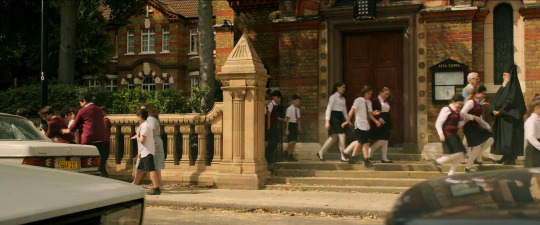
this is the most english architecture ive ever seen. that church is catholic and loud about it. father Triantaffylos over there looks so confused because he really is.
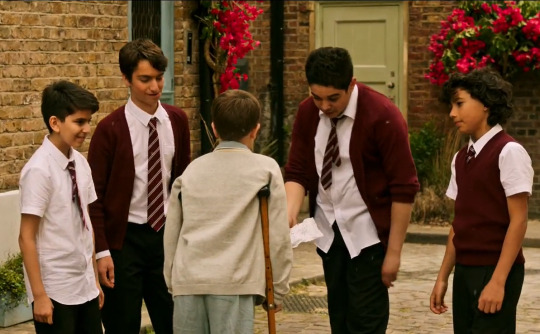

what the fuck are those uniforms. please look at the modern haircuts. to the right are school uniforms from the 80’s right before they stopped using them. what is a specialised children’s hospital and three englezakia named milo, michael and lucian doing on a greek island.
did anyone bother to google like. greece 1980. really not to shit on them but i make movies too and not only is it half the fun to research and find period accurate items but it’s also your duty?? i think? otherwise why not have the story set in london where you filmed it? props to the very north-european looking jared harris for pronouncing his one greek word right though.
tl;dr i know americans making movies about other cultures is always a fucking disaster but maybe stop being an american for a hot second and be a fucking filmmaker instead?
#every time I get so furious. maybe do more than Google translate maybe look at a couple of pictures online maybe ask the Greek person#in your crew am I reading this right?#morbius#morbhead
2K notes
·
View notes
Text
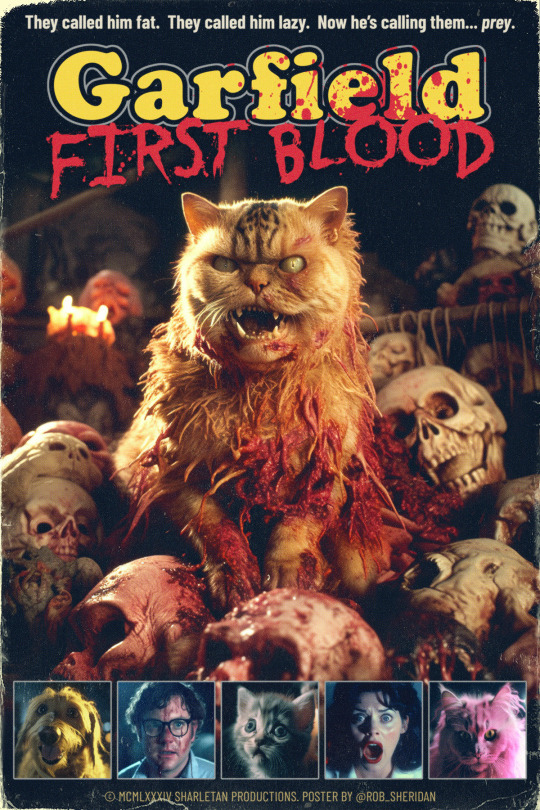
Poster for the unproduced 1984 live-action horror adaptation GARFIELD: FIRST BLOOD.
Following the success of CUJO in 1983, studios were scrambling to find the next hit “killer pet” flick. Notorious grindhouse auteur Ron Sharleton, seeking a big-budget movie deal to fund his struggling production of CANNIBAL QUARTERBACK 2, set his sights on the most unlikely of properties: Jim Davis’ beloved comic strip Garfield. Sharleton, a self-proclaimed fan of Garfield who called the strip “a subversive celebration of misanthropy,” believed an “alternative, adult” spin on the character could thrive in tandem with its kid-friendly cartoons. Describing his rationale in an interview later, Sharleton said: “You have all of these R-rated films that come out and become big hits and the studios want to suck every penny out of one idea, so they sanitize it and repackage it as a cartoon for kids. So I said, why can’t we do the reverse?”
GARFIELD: FIRST BLOOD was pitched as a dark, gritty reimagining in which the titular cat, pushed to the brink on a particularly bad Monday, finally snaps and kills Jon’s dimwitted dog Odie. As he tastes Odie’s blood, Garfield is overcome by how good it felt to put a permanent end to something that annoyed him. He then realizes that everything and everyone annoy him, and his murderous rampage begins.
Describing his take on the character, Sharleton said: “Garfield never really sat right with me as a children’s character. He’s so much darker, more complex. You have this cat who is filled with contempt; he looks at the world around him with radical skepticism and scowls at the prison of tedium mankind calls ‘society,’ and he responds with this very self-indulgent nihilism: Be lazy, be a glutton, don’t participate in anything because it’s all bullshit. Garfield looks at Jon waking up early on a Monday and putting on his tie to go to a job he hates, and he sees a pathetic fool. It’s all such a powerful rejection of the Reagan Wall Street capitalist disease that has poisoned the 80s. ‘Work hard, climb the ladder, buy a boat!’ Garfield says fuck that, stay home, eat lasagna, accept no master. But living as an iconoclast in a conformist world has filled him with all this tension. There’s anger in there, you know? So I wanted to examine what would happen if Garfield was finally pushed over the edge. Where’s the line between a passive nihilist and a violent anarchist?”
Warner Bros execs were intrigued by Sharleton’s pitch (and the lucrative cash cow of the Garfield brand) and funded a short “proof-of-concept” trailer, directed by Sharleton, to convince Garfield creator Jim Davis of the idea. The trailer reportedly went “all-in” on Sharleton’s signature “splattercore” horror, including a scene where Garfield grinds up Liz Wilson alive in a meat grinder and bakes her flesh into a lasagna he then serves to Jon. The presentation to Davis was described as “one of the most disastrously miscalculated meetings in modern Hollywood,” with Davis stopping the trailer midway to ask the room “are you people completely fucking insane?” before storming out.
Reflecting on the meeting years later, an anonymous former Warner exec said “we knew it was a long shot, but we really felt like the only way to sell the concept was to push it as far as possible. In retrospect I think yeah, we did let it go too far. We were so absorbed in it that we didn’t realize how jarring it would be for a guy like Jim Davis to just be thrown into this cold. I think it was a mistake to open with the Nermal blender scene, but we wanted shock, and we thought… I don’t know, everyone was doing a LOT of cocaine back then. Well, everyone except Jim Davis."
-----------
UPDATE: T-shirts and poster prints now available!
NOTE: This alternate reality horror story is part of my NightmAIres narrative art series. NightmAIres are windows into other worlds and alternate histories, conceived/written by me and visualized with synthography and Photoshop.
If you enjoy my work, consider supporting me on Patreon for frequent exclusive hi-res wallpaper packs, behind-the-scenes features, downloads, events, contests, and an awesome fan community. Direct fan support is what keeps me going as an independent creator, and it means the world to me.
#rob sheridan#nightmaires#garfield#alternate history#ai art#ai horror#synthography#synthography horror#writing#horror#80s horror#80s
392 notes
·
View notes
Text
The Music Goes On and On

Rating: K/General
Setting: in the decade before the main story.
Synopsis: Shinji is going about his daily life at his job in a music store, until he sees an old face from the past.
AN: the winner of my first poll! This was fun to write, so thank you to everyone who voted for it!
I hope I did Shinji justice here. He's a character I love, and I've always wanted to know what he and Visoreds did after escaping the the Living world and before they introduced themselves to Ichigo. I've broached the topic before in As Months Go By, As Season Change part II, but I wanted to write a specific instance of his life in the World of the Living. I had intended this to be more comedic, but well...it's me, and it ended up more angsty with one sappy moment.
In terms of research, I looked into Japanese 1990’s music and the workforce during the 1970’s. I'll briefly go over it here, but if you want to skip it and get to the fic, continue to the line break before the story begins.
For music, I mainly used information from this article about Japanese jazz bands, doing Youtube searches for 1990s Japanese music, and searching for what records stores in Japan typically look like.
The songs, albums, and bands mentioned in this fic are:
B'z: a Japanese rock duo who sold millions of albums during the 1990's. They're one of Japan's best-selling artists even to this day, having sold over 80 million albums.
Sasori ni sasa reta by Kimidori
Review by Glay: this was one of the best-selling albums in Japan for 1997, and sold over 2 million copies in it's first week.
Casiopea: a Japanese jazz fusion band who have created over 40 albums as of the time of writing this fic. They've been active since the 1970's, and have gone through four phases with different band members; in this story, they're in their second phase.
Light and Shadow by Casiopea
Casiopea by Casiopea
Yasuko Agawa: a Japanese jazz and blues singer. Before releasing her debut album, Love-Bird, in 1978, she starred in movies in the early 1970’s. This included the Bloodthirst Trilogy, a Japanese horror film trilogy that involves unconnected stories about vampires. Agawa starred in Chi o suu bara, which is the final film in the trilogy and it's title has been translated to Evil of Dracula in English.
Love-Bird by Yasuko Agawa
All Right by Me by Yasuko Agawa
Scenery by Ryo Fuuki (also mentioned in As Months Go By, As Season Change part II)
In terms of the workforce research, I had to change the timeline in light of what I found. Rather than seeing a coworker Shinji knew from 30 years ago, it's now 21 years. This is because the store they worked at together, Yodobashi Camera, opened it's first store in 1975, and in this fic Shinji got a job with the company a year later. In it's early years, the stores primarily sold cameras and photography equipment, but eventually branched off into other technology and home electronics such as TVs and PCs. Nowadays it's online version is incredibly popular and one of Japan's most visited online shopping platforms. Why a camera store? I can't explain why, but I have this weird feeling that Shinji might've worked in a camera store at some point. Maybe because old camera's used to have inverted lenses, meaning they could be upside down (and we all know how Shinji feels about things that are inverted).
Finally, there's a slight joke with the name Shinji chooses to use here. From what I saw in my research, ‘Mako’ can use the same Kanji characters as ‘Shinji’, (which are ‘真子‘ and if I’m not mistaken have the same meanings of ‘truth’/’sincerity’ and ‘children’) but both names can also be spelled using other Kanji characters too (but it changes the meaning of the name). While ‘Mako’ tends to be primarily a girl's name, it seems it can also be a boy’s name too, and from what I can see, the spelling of it can be same for both boys and girls when using the same characters as ‘Shinji’. If I got any of this wrong, please let me know so I can change it. My sources for all of this were here and here.
Anyway, I hope you all enjoy this!
______________________________________
The bell above the music store’s entrance rings as the latest customer leaves. Shinji doesn’t glance their way, taking and unfurling a poster of B’z from his cart. After pinning it to the wall, he lifts out a box of CDs to restock the ‘New Releases’ display rack at the front.
Karakura Beats Records Store is empty save for him and Kana, who resumes pricing the latest shipment of vinyls behind the cash register. The morning sunlight pours in through the many posters and notices stuck to the windows facing out on to the quiet street, casting blocks of shadow over the many vinyls and CDs.
From the speakers high up on the walls, a tune he’s never heard before begins to play quietly through the air. Shinji drums his fingers on the CD rack to the tune in between stacking in copies of ‘Review’ – which will no doubt be gone by the end of the week if the hype around the album and the sales figures from other music stores are to be believed.
Eventually, he’s swaying his body to the beat too. “Yo, Kana-san!”
She looks up, her bright, dyed hair falling over one shoulder. “Yeah?”
“Which track is this?” he asks, still swaying as he tops up the rack the. “It’s a good one, I might buy the album if the rest is any good.”
“ ‘Sasori ni sasa reta’ by Kimidori.” She grins. “I knew I could get you to like something I like.”
“Didn’t think you’d like hip hop.”
“Not much of it, but I heard this one when I was in my last year of high school.”
Done with the CDs, Shinji returns to his cart and rolls it behind the cash register. “Ya done with those?” he says, pointing at the vinyls.
Sticking a price on the top one, Kana picks up the pile and drops them into the cardboard box that just had 'Review' in it. “Done now.”
He goes to pick it up, but blinks down at the cover. There’s three shadows on a white surface, and above them with is a de-saturated sky, and running along the middle is a dark lake and the silhouettes of hills and houses. The album’s title is in English, as is the band name. Even so, he recognises the name without having to read the blue slip on the vinyl’s side with a translation. “Huh, when did this come out?”
“In September. The old drummer came back, apparently.”
“Ya mean Jimbo Akira?”
“Yeah, but it’s got a guest drummer too.” Kana cocks an eyebrow at him. “I’m surprised you don’t know. You like Casiopea, right?”
Shinji shrugs. “Some of their stuff, sure. I can take ‘em or leave them, just surprised I didn’t know about this one.”
“They release something every year, right?” Kana says, moving on to the next stacks of vinyls and CDs to price. “Shouldn’t be too surprising.”
No, it shouldn’t. He’d been listening to their music since their self-titled debut album in 1979, and even though he’d lost some interest in their music by the late 1980’s, he still kept tabs on them. But then, even after being in the world for as long as he has, the passage of time is so different it sometimes escapes him.
Resisting the urge to shake his head, Shinji puts two other boxes of CDs and vinyls Kana had prepared into his cart, and rolls it down the right-side aisle.
Hecomes to a stop at his favorite section. Written above the display racks and cupboards is ‘Jazz’. When he’d started here three months ago, while he'd been impressed the store's collection was better than others he'd come across, the section had been smaller and in desperate need to of a wider range of artists. After showing his extensive knowledge about jazz and blues music had been one of the reason’s he’d been hired by he and Kana’s manager.
Aside from the usual roles in customer services, he’d been tasked with refurbished the store a little, putting up posters for bands and music artists on the walls and redoing the titles over each genre section. While doing the latter task, he had to withhold the temptation to write every genre name upside down – he’d tried to argue it would make them stand out from other stores, but backed down when Kana protested against the idea, saying ti would confuse customers.
The jazz section was his unofficial space in the whole store, the one where he got to arrange it as he wanted. The entire row against the wall has a wide variety of artists, from the famous to the up and coming to local talent. He goes to the where the rest of Casiopea’s discography is and clears a space for the vinyls.
The bell rings again. Kana greets their new customer from the counter and offers assistance. Judging from the voice that thanks her, the person is elderly.
Shinji doesn’t listen to the rest, but as he makes his way down the middle aisle to stack some vinyls and CDs in the ‘Rock’ section, the older man remains in his peripheral. He takes out the box, balancing it on the rack with his arm over the top, and unloads the vinyls two at a time into an empty space with the others. He frowns at the sensation in the back of his mind; something nags in the back of his mind, begging him to look at the man.
The bell rings again. This time by the sounds of it, it’s one of their regulars, a young woman who’s name doesn’t remember. She and Kana chatter away, discussing the weather and family. It’s so ordinary, so far away from all of the worlds he’s ever known. He hasn’t been in the Soul Society for decades, and yet there are times like now when it feels like only yesterday he was a captain.
With all the vinyls stacked in, he begins to lift the almost empty box back into the cart. However, his arm bumps into someone, clattering the records inside. Shinji turns to apologize, but his throat closes up involuntarily when he sees it’s the older man from before.
“Oh, sorry, please excuse…” The old man trails off.
Shinji frowns, that nagging sensation getting stronger now that he has a closer look at the man. He’s not as old as he thought. His hair is greying, but there’s still some dark hair on the top of his head and in his thick eyebrows. Wrinkles ring around his eyes and the ends of his mouth, but they aren’t deep, only just beginning to show more prominently. Behind his glasses, the man’s eyes are dark brown, and widened with probably the same strange feeling of familiarity as Shinji is experiencing.
Then, when the man tries to speak again, and his brows furrow into a frown, it hits Shinji.
He nearly has to bite his tongue from saying the man’s name aloud. “No harm done,” he somehow manages to say without any of the spiking nerves thrumming through him.
He tries to remain calm as he continues stacking the vinyls in, but he can feel the man’s – Keiji Mimura’s -- lingering gaze on him, even as he turns and pretends to browse the albums in front of him.
He has to get out of this fast. He can hear the cash register going; Kana must be ringing up the regular, which means she’ll be free any second now. He hoists the box back into the cart, planning to head back to the counter, then offer to take over the register for Kana. She’d go out on to floor, probably keep Keiji distracted and try to sell him some obscure rock album she likes. If he ends up buying the album, Kana will likely keep the conversation going all the way to register, get Shinji to move aside so she can ring Keiji up, and then he’ll be gone from the store, and Shinji’s life again.
Shinji doesn’t even make it three steps when Keiji speaks up behind him. “…Hirako-san?”
Shinji has no choice but to stop and turn around. In the face of the man’s shocked expression, Shinji somehow manages a smile. “Excuse me? Did you say something.” It sounds lame even to his own ears.
The man shakes his head. “Forgive me, it’s just…you look and sound like someone I used to know.”
It takes everything in Shinji to not drop the smile, but even then, the corners of his mouth twitch. How to get out of this?
He and the other Visoreds had managed to keeps their identities a secret up until now, switching jobs every few years, never getting close to any coworkers and never revealing anything about their personal lives. They mostly find work outside of Karakura Town in the major cities, countryside towns, and to a smaller extent the towns that surrounded Karakura. The commutes were a pain, but they needed to make a living and not expose themselves as being ‘ageless’ to local residents. This was his first job in Karakura Town, and it had partly been out of desperation when he couldn’t get another anywhere else.
He can dismiss Keiji, just treat this as an awkward encounter with an elderly man who had a case of mistaken identity. It happens, more often than he realized before being forced into the World of the Living.
It’s what he should do.
Later, as he's walking back to the warehouse and then while being lectured by the other Visoreds after telling them about his day, he will reflect on this moment where he chose to do something far more troublesome for himself.
Shinji’s widens his eyes, pretending to come to a realisation. “Ah! Wait. I think I understand your confusion.” He chuckles and shakes his head to himself for effect, leaving the older man bewildered. “I’m terribly sorry, sir,” Shinji continues. “Did you used to work with Hirako Shinji?”
“Y-Yes!” Keiji stammers out.
“Ah, ya see, he’s my father. I’m his son.”
The older man blinks, briefly scanning Shinji from head to toe. “He never said anything about children,” he murmurs under his breath.
Shinji pretends he didn’t hear it, remaining rooted in place, grin plastered wide over his face and a fisted hand on his hip. Seeing the man’s unfaltering skepticism, he bows slightly and holds his hand out to him. “I’m Hirako…Mako.”
Of all the names! He purses his lips and continues to stare at the ground, hard, as he inwardly begs, Please don’t think too much on it, please don’t think to much on it, Keiji-san, don’t think --
After a beat, the older man bows and shakes Shinji’s hand. “I’m Mimura Keiji. Forgive me for before, it’s just that you look so much like Hirako Shinji – your father, I meant.”
“That’s fine. I’ve gotten that quite a bit, actually. Everyone’s always saying I look like my old man.”
That gets a huff of a chuckle out Keiji; Shinji can’t tell whether it’s due to the comment, how informally he’d spoken, or how the way he spoke was identical to his 'father'. It's probably the latter.
Keiji lets go of Shinji’s hand and they both straighten back up. The store bell rings, briefly drawing Shinji’s attention to Kana. To his chagrin she doesn’t look his way, instead continuing her chat with their regular as she makes her purchases.
“I worked with your father a long time ago.” Keiji explains. “We were coworkers”
Shinji keeps his grin small as he returns his focus back to his old coworker. “Where did you work with him? The old man’s had a lot of jobs across his life.”
Keiji smiles. “So he said. We used to work at Yodobashi Camera together.”
“Ah yeah! He was a sales clerk there. He barely knew a thing about camera’s when he started, huh?”
Another huff of a chuckle broadens the old man's smile. “He learned on the job. I was no expert at the time by any means, but he even had to learn which button to press to take a picture.”
Shinji chortles, both from the memory and the embarrassment of those years. He’d been the World of the Living for several decades by that point. He’d known about cameras but was so concerned with training to control his Visored abilities and stay afloat money-wise he hadn’t ever learned about some of the most basic things for humans.
“He was all right with the other technology of course,” Keiji continues. “We often had shifts together. Every now and then we went for drinks at ‘The Golden Cup’ with everyone else.”
Despite himself, Shinji can’t help but grin wider as nostalgia flutters in his chest. He and the other Visoreds tried to maintain a certain distance between themselves and the cowrokers in whatever job they worked in. Regardless, on rare occasions, he’d indulge himself and go drinking with his coworkers. He did it more often with the employees of Yodobashi Camera than in any other job, and he’d never had a bad night out with them. They were a good bunch of hard workers who knew how to party even harder afterwards -- or at least as much as they could given that they all needed to wake up and go to work the next day.
“I -- He mentioned that too,” Shinji eventually says. “He always came home in a good mood after those nights, tripping over his feet."
Keiji gives a nervous snort. "I must admit, I did worry about how much he drank sometimes."
Shinji did too. He recalls the concerned pinch of Keiji's brows when he was about to leave, wobbling on his feet. He rarely got drunk, and he didn't always understand why he chose to get drunk with those guys.
"Nah, he was always sharp," Shinji says, "even when drunk. Heck, he could even play mahjong while drunk and still win." He let's Keiji's chuckle fill in the air for a pause. "He used to play that game with his coworkers too, right?”
“Ah, yes! I used to enjoy our games.” Keiji sighs. “It’s been a long time since then, and Yodobashi Camera has certainly grown bigger and bigger over the years.”
“Ya can’t escape them these days, huh? Feels like they’re at every railway station in the major cities.” Shinji leans back against the vinyls racks, trying to appear casual. “So, do you live in Karakura Town now?”
“Oh, no. My wife and I are visiting our daughter. I assume you live here?”
“Yeah, I moved here about a year ago.” A lie, so natural sounding from years of saying many more like it before.
He can sense the next question coming – something to effect of ‘Do your parents live here as well?’ – so he quickly continues, “It’s a small town, but there’s a few places I can recommend for visitors if your daughter hasn’t taken you to them already.”
“We only arrived two days ago. We visited one of the shrines with her yesterday. My wife and daughter are having breakfast at a cafe nearby. We’re planning to walk around the shopping district this afternoon.”
“All good ideas. There’s also Tsubakidai Park, it’s always nice to walk around there. There’s also a music performance happening there two days from now, local bands mostly.”
“Is there now?”
Shinji points to the most recent poster taped up next to the store’s entrance. He briefly glances at Kana, who had gone back to pricing the vinyls, but she’d stopped at some point, staring at their exchange. She eyes him with a raised brow. Her expression is asking him ‘Is everything okay?’
“See that there?” Shinji says, keeping Keiji distracted long enough to wink at Kana in reassurance. “It’s got the details for it if you’re interested.”
With a shrug and a good-natured roll of her eyes, she returns to her task.
Keiji nods. “I’ll be sure to look at it on my way out.” Turning back, he looks over Shinji shoulder. “Speaking of, I came here to get an album I was told would be here. I believe it will be under jazz.”
“Yeah? Which one?” Shinji asks as he leads Keiji to the ‘Jazz’ section.
“It’s often hard to find, but Umei -- oh, she's my daughter -- thought I should try my luck here. She said this store often sells music from older artists. ‘Retro’, she calls it.”
“She ain’t wrong.”
Keiji frowns thoughtfully when they stop in front of the rows of CDs and vinyls. He let’s out a sudden, ironic laugh. “Actually, now that I think about it, it’s from a singer your father introduced me to.”
Shinji already knew, and his heart squeezed for a moment. “Oh, yeah? Which one?”
“Agawa Yasuko.”
The memory comes to him. He’d gone drinking with Keiji and his coworkers, and they ended up discussing films they love. When the topic of The Bloodthirsty Trilogy came up, Shinji brought up how Yasuko Agawa had gone on to make music since then. Only Keiji was interested, and took up Shinji’s suggestion to go buy her debut album. He hadn’t seen someone as smitten with a jazz album as Keiji (and apparently his wife) was. They discussed her singing the next day during lulls at work, and for the first time in a while, Shinji felt relaxed, briefly forgetting the troubles that always weigh on his mind.
“Well, her albums are just here,” Shinji says, gesturing to the left-side display racks. “Were you after CD or vinyl?”
“CD,” Keiji says while steps around him. He bends over the CDs and thumbs through them. “You have most of her albums here.”
“It’s like your daughter said, we’re retro here.”
He takes out a copy of ‘All Right With Me’ with a grin. “This is the one! I listened to it last year, but haven’t been able to find a copy of it until today.”
“It’s a good one, she’s always had a great voice. I can recommend any of her albums, they're all good.”
“Ah, are you a fan of jazz music too? Just like your father?”
“Yeah, like my old man, jazz is one of my favourite genres. It never gets old.”
“He said the same thing.”
Then, because one of half of him is now stuck in the past, Shinji says, “My father mentioned you had a wife, a daughter, and a son. They doing okay?”
Keiji hums in ascent. “Yes, very well. I’m not sure if your father told you, but my wife, Kyoko, works in a bakery. She has worked in the same place for over twenty years now, and got promoted to manager five years in.”
“That’s incredible!”
Keiji nods firmly and returns to flicking through the albums. “She’s always been determined. Umei is a newspaper reporter for the local news here, and my son, Naoya, is an accountant in Tokyo.” He grins. “He’ll be having our first grandchild soon. My wife is eager to be there in the weeks before the baby is born, she already has gifts planned for him. He’s a lot like his mother, determined and hard-working. I have no doubt he’ll be a good father.”
Shinji has the sudden urge to reminisce with this man. To talk about their days in the store, where Shinji learned how to use a camera, and about their regular customers. To show he remembered the little details Keiji had told him about his life outside of work – how Kyoko would come to visit them with baked goods when she knew her husband hadn’t packed a lunch, or how happy he was about Umei’s first day of school, or when he was pleasantly surprised by Naoya’s sudden obsession with the new ‘Astro Boy’ anime. To talk about the music from that time, and see if he’d taken on other jazz and blues recommendations he’d made.
At Shinji’s silence, Keiji’s grin transforms into a bashful smile. “You’ll have to forgive me. I must seem like an old man rambling about my family and reminiscing about the past.”
“Nah, it’s fine. I get it. My old man worked at Yodobashi Camera over twenty years ago, and if I saw an old coworker, even if it was their kid, I’d want to talk about it.”
"Well, thank you then," Keiji says, “How is your father these days? I probably should've asked that first.”
Shinji knew it was coming, hovering over them from the moment Keiji recognised him without realising. Even so, the pit of his stomach plummets along with his grin. He’s at another crossroads.
He takes in the man’s features again. How the wrinkles gather deeper around his eyes and around his mouth as he speaks. The fact he wears glasses now, resting over the faint scar on his nose he got when he broke it during a high school baseball game – he’d tumbled after getting homebase and cracked it on the ground, Shinji recalls; it'd been a drunken confession made on one of the night he'd gone out with the coworkers.
He thought noticing age couldn’t affect him anymore. But seeing someone from his past, someone who he got along well with and truly wished the best for, it strikes something in him. He’d been a Shinigami for centuries, ferrying hundreds of Souls like him to the Soul Society. One day, Keiji will be met by a Shinigami when he passes on, and forget the life he’d lived by the time he gets to the Soul Society.
It’s then SHinji realises he's been living in this world for too long. That detachment, that knowledge that he was not like humans, has eroded over time, crumbling bit by bit, leaving only a thin slab behind. Hiyori was right; he should’ve left his job at Yodobashi Camera sooner. It's been one of the longer jobs he'd had, and he recalls trying to stuff down the bitterness of leaving it behind when he left on his last day.
It hadn't been right to drag Keiji along like this, for his own selfish whims of wanting to relieve the past. So he does the right thing this time.
Shinji looks off to the side. “He’s gone. So is my mother.”
In the pause, Keiji remains frozen in place, lost for words. “Oh, I…I’m so sorry. I didn’t mean to bring up…I had no idea.”
“It was three years ago. He and my mother were involved in a car accident.” Like all his lies, it comes out smooth and natural, like he is the son reflecting on grief he's only just overcome. He hates it.
Keiji shakes his head in disbelief. “That's awful, truly. I really am sorry.”
“Thank you, but you don’t have to be. I’m sorry you found out this way.”
Keiji is silent again, staring at the ground for a long moment before raising his head. There’s a faint mist across his eyes. “Your father and I only knew each other at work, and on the occasions he came to drink with the rest of us. Even so, I could always tell he was a good man. He worked hard, but he always had time to help others around the store too. Not just his coworkers, but also the customers.” His smile faintly returns. “I always wondered what happened to him after he left the store. I always thought, though, that wherever he went, he’d do good work.”
Keiji always saw the good in others, and in a time where Shinji still hadn’t fully processed Aizen’s betrayal, he’d been wary of the man at first. He'd reminded him of his seated officer Genji Isawa: a hard worker who could bring a smile and laugh to anyone who met him. Maybe this is why he'd eventually came around to being a little less guarded with him.
In his last year with the store, it was only then he’d begun to take an interest in his personal life and the lives of his coworkers, whether it was the rowdy Takahiro, or the quiet but hard working Kaneshiro. In some ways, now that he thought about it, Keiji might’ve been the closest thing he’d had to a friend in many years. Still kept at a distance, still lied to, but still an echo of a friend, one he probably would've had in another life.
He can't tell him any of this, not without it sounding like he truly knew him rather than a son telling a father's old coworker what his old man thought of him.
He'd put what little detachment he still had between him and his past, but now it came bleeding through like a bruise. If only he knew he was speaking these words directly to him and not to the son he thought he was.
“Thank you,” Shinji says quietly, still unable to meet Keiji’s eyes completely. “He’d have appreciated your words a lot.”
A sombre awkwardness settles over them, only broken when the store bell rings. A young couple come in, with the woman goig straight to the ‘New Releases’ rack. Shinji looks to Kana, who now unabashedly just stared at the scene unfolding in the corner of the shop. She’s only distracted away when the man who just entered asks for assistance.
Keiji bows. “Thank you for your assistance and for listening to my ramblings today, Hirako-san. I’ll go purchase this now.” He rises, but doesn’t move to the counter. He hesitates to say something else, lips parting and closing. "And I'm truly sorry for your loss. You have my condolences."
Shinji can only nod. This will be the last time he ever sees Keiji. It’s just as well, given the emotions and reactions he’d undergone today. Who knew how he’d react to meeting some of his other old coworkers from his other jobs. If nothing, this has reiterated why he shouldn’t get close to any of the humans, not even asking them about or taking an interest in their personal lives.
But some part of him, a wistful part that he’d thought was buried under the cynicism and hurt of Aizen’s betrayal, urges him to do one last thing. His detachment tries to block it, but it shine through, clutching at his heart.
“Did my father ever tell you what his favorite record was?” Shinji asks.
Keiji frowns slightly and shakes his head. “He might have, but I’m sorry, I can’t remember.”
“Well, to be more accurate, it’s one of his favorite records.” Shinji takes a step backwards and scans the lines of CDs until he finds the one he needs. He fishes it out of the rack and presents it to Keiji. A copy of ‘Scenery’. “He loved it from the moment he heard it. I still have his vinyl copy of it.”
Keiji is slow to take the CD. “I’ve always been more into pop music, really. Agawa Yasuko is the only jazz singer I liked.”
“It came out in 1976, the same year he started working for Yodobashi Camera. He said that while listening to it, it’d remind of his life at the time, including his work and his coworkers. He always associated it with good memories.”
Keiji nods, and his smile returns, albeit with a sadder edge to it. “I’m glad, then.” As Shinji holds his hand out, planning to take the album and put it back, Keiji raises his gaze back to him. “In that case, I’ll be buying this too.”
Shinji let out a chocked chuckle. “Whoa, hey, I wasn’t trying to make a sale –”
“I know, but I want to buy this now.”
Keiji had to be guided by his sentimentality right now, this isn’t fair. Did he feel the need to listen to this to honor him? “Hey, look, it’s really not –”
“If you recommend it, and if your father would’ve recommend it to me, then I have no doubt I will enjoy it. I’m sure my wife would too. She also likes Agawa-san’s music, and a few of the other recommendations your father made.”
Somehow, that lightens the load on his heart. He even manages a grin. “Then in that case, it’s on me.”
“What? Oh, no, please, there’s no need –”
Shinji holds up a hand to silence him. “It’s no trouble. Think of it as a gift.”
Even as they walked to the counter, Keiji fretted about the idea. Kana is ringing up the couple, but as the woman counts out the money, she eyes Shinji and Keiji as they approach.
After serving the couple, Keiji comes up the counter and Shinji digs his wallet out of his pants pocket.
“He’s buying the Agawa album, the Fuuki Ryo one is on me.”
“Really, you don’t have to do this,” Keiji insists.
Kana only shrugs as she takes Shinji’s money. “If you’re sure.” She turns to Keiji with a smile. “Good choices by the way.”
Keiji hands her the albums and his money. While waiting for Kana to count up his change, Keiji reads the poster for the upcoming music festival. “I’ll tell Kyoko and Umei about this. I have a feeling they’ll be interested.”
“It’s looking to be a good line up this year,” Kana says while handing him his change and bagging his purchases. “They have a lot more local acts. It’s always good to support them.”
“Yes, it is.” He bows to her after taking the bag from her. “Thank you very much.”
She bows in return. “Have a good day, sir.”
Keiji then bows to Shinji. “And thank you so much, Hirako-san. I’m glad I got to meet you. Please, pay my respects when you next see your father and mother.”
Shinji bows in return. “Likewise, Mimura-san. I’m sure my old man would’ve been happy to see you today.”
Both rising, Keiji smiles broadly, before turning and leaving the store. There’s a still silence after the bell above the door rings. A few heartbeats later, Kana finally speaks. “What was that about?”
“One of my dad’s old coworkers,” Shinji says, ungluing himself from his spot and going back to get his cart. From across the store, he says. “My old man and I look a lot alike, so he thought I was him.”
“Huh,” Kana huffs. “That sounds like it’s be awkward.”
“It was, but…I’m glad I got to see him.”
Kana’s brows frown slightly, but she doesn’t say anything about him ‘seeing’ rather than ‘meeting’ him. “So long as you’re feeling okay about it.”
“Yeah, I am.”
The rest of the day continues as usual until closing time. The sky has turned to amber, with the last of the sun peaking out over the horizon, by the time Shinji and Kana steps out of the store.
After locking the front door, Kana spins to him and hitches her bag over her shoulder. She jerks a thumb in the direction of Karakura’s main shopping districts. “You want to go for a drink?”
She always offers, and just like every other time, Shinji shakes his head. “Nah, gotta get home.”
Kana shrugs. “Suit yourself.” Unlike other times, concern flickers across her expression. He’d tried to hide the sombreness that’d settled into him after Keiji left, but maybe he hadn't been convincing. Maybe he's losing his tough.
Kana bows. “Thanks for your hard work today. See you tomorrow.”
Shinji does the same in return. “See you tomorrow.”
They part ways, going in opposite directions.
Autumn is in the air, crispy in the wind that brushes against him as he walks the quiet streets of Karakura Town. The streetlight pop on, beaming down over him and the those either returning home or heading for a night on the town in the shopping district. He can blend in with everyone, dressed like them and walking like them, but never be one of them.
He never wanted to be, still doesn't, but like them, he'd let that small part of him, that sentimental part of him, get the better of him.
As he comes to the quieter part of town, getting closer to the warehouse, he contemplates quitting his current job. It's only a passing thought, one that he dismisses when he considers his and the Visoreds financial situation. Kisuke had been generous over the years for someone struggling almost just as much as them, but they can't rely on him.
They needed to make their own path back to the Soul Society. Back to Aizen, to take him down once and for all. The old fire returns in Shinji's, a determination he'd used to fuel his detachment form humans.
But he's been here for so long, more than a century now. He's been alive for too long, and been around humans for too long.
Their lives are so short; one moment they're here, and the next, they're meeting a Shinigami or another agent of death. Yet, he'd come to like some of the human's he'd interacted with over the decades. Keiji is clearly one of them, and for all of the grief today had caused him, he still can't deny he'd been glad to see him. But now he'd another person in his past, one he'll never see again.
And one day Kana will have to be one of those people too. He could still visit the store for next few years and get away with it, but there will come a time where he’ll have to stop visiting. And even then, he’ll have to watch himself more in public; Karakura is a big place, but there’s still a decent chance he’d run into her on the streets in the years to come.
When that time comes, she might wonder where he went, what he’s up to, or maybe she won’t. Maybe she’ll unintentionally spare him and move away, going back further north to be closer to her family and finally confess to that one highschool friend she sometimes calls on her breaks and still lives in her hometown. Maybe she’ll use the money she’s saved over the year for singing and guitar lessons, then start that rock band she’s always dreamed of and leave Karakura to go touring.
And maybe none of that happens, and she stays here until the end.
It’ll be a shame when it happens. Despite how small the store’s original jazz section had been, he always loved the store’s collection. He hadn’t found another like it in all his time in the World of the Living.
#shinji hirako#sosuke aizen#mentioned only#Visoreds#genji isawa#yes he makes a cameo here!#bleach#fanfiction#angst#on a side note#I'd like to think this was Shinji's last job while he lived in the World of the Living#that he stays at this job for the longest of any of his jobs#maybe even up until the year before the start of BLEACH's main story#he tells his manager he has to leave#and then several months later BOOM he meets Ichigo#and yes#I think Kana would wonder about him long after either she or Shinji leave the store
20 notes
·
View notes
Text
Here’s how Lucas Sinclair can get a motorcycle:
So Will’s famous painting of foreshadowing as well as official artwork depicts Lucas on a horse:
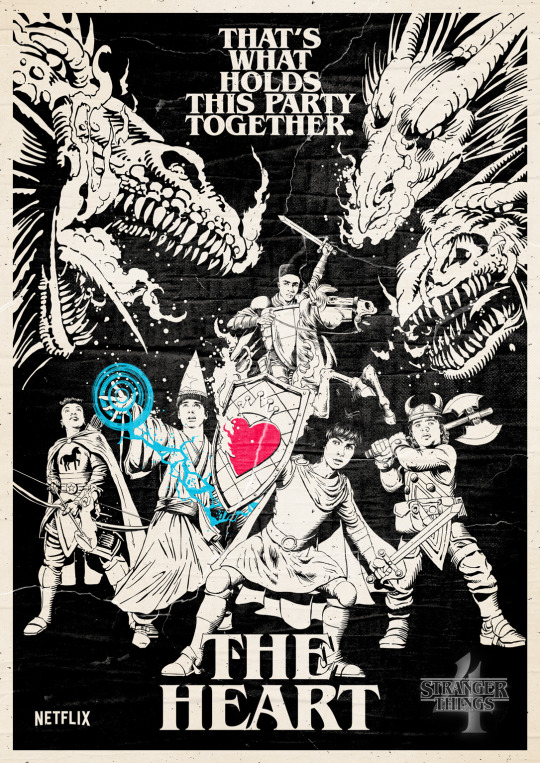
(artwork via Butcher Billy on Twitter)
Now it’s not too far fetched for Lucas to acquire a horse in Hawkins, there are farms around town, although they’ve been shown to be mostly for crops instead of animals. He could potentially also have a demogorgon horse (demohorse?) but I digress.
The more realistic “stede” for Lucas to have would be a motorcycle.
We also know that the Duffers take a lot of direct inspiration from popular 80’s movies. Well one of the most influential 80’s movies that have already had references in the show is 1988’s Akira

I say references loosely because I don’t know if there’s confirmation that they took inspiration from this film, but given it’s popularity and similar use of psychic children, hospital escapes and themes of nuclear war I’m inclined to believe that they must have taken some imagery from Akira. And considering how the time jump could place the show closer to ‘88 I think Akira could be the perfect film to pay even more homage too.
Not to mention a motorcyle is just something that I can totally picture Lucas having. He would definitely find them cool and his family has the financial status to get one. Plus when Max wakes up she can still “zoom” by riding on the back of it with him.
#lucas sinclair#lumax#byler#tagging byler cause you guys are perceptive to foreshadowing especially in promotional material#also just cause i like you guys#i just have such a clear vision in my head of lucas on a hog
215 notes
·
View notes
Text
AI Art mistakes Episode 1: Gravity Falls as an 80s mystery movie.

Like usual, AI struggles to replicate text. There are a number of reasons why an AI generated background image is a bad idea under most circumstances, especially as a final draft.

Here is an actual picture of the Mystery Shack from the show. This design was based off of research done by the team working on the show. They travelled to actual tourist traps in order to find objects to draw as background details, like the signs and decor around the shack.
The AI version doesn’t scream tourist trap house, it screams random gas station [which is what I assume the rectangles in the far bottom right are supposed to represent]. The scale of the signage on the real design gives us insight into Stan Pines, the owner of the business, and what we can expect to find on a tour. The moss, missing S laying on the roof, and big board underneath all tell us something important: This is an old building, and the owner is cheap.
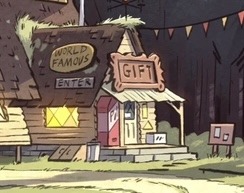

The scale of the full shack is much larger than the little AI version, so much that the Gift shop area feels around the same size as the whole thing. The AI version isn’t believable as a house/shop combo because of how small it is, and the broken window!

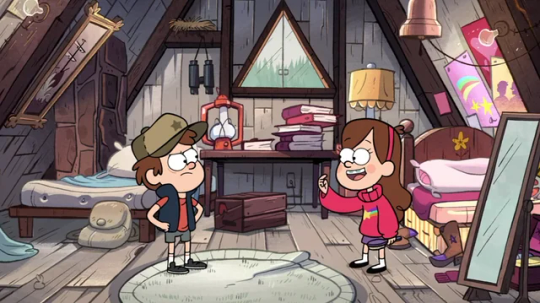

There’s a room big enough for two children to have separate beds and a large room with a window nook in the attic area of the mystery shack. We don’t know where this bathroom is on the ground floor, but given the fact that there’s an outhouse, we can assume this is meant for the family living at the Shack, not tourists.
The detail of the non-suspicious triangular windows is lost in the AI image, and since none of the posters even spell words, there’s no good details gained from including them.
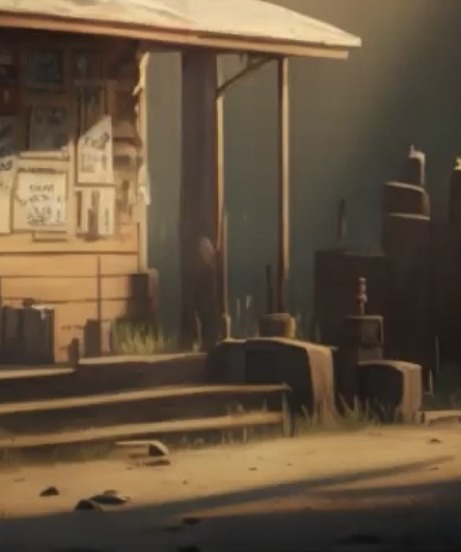
This support on the porch roof doesn’t connect back to the building, it connects to this tree trunk. And the supposed gas pumps don’t make sense either because there’s usually only one or two, and they’d all be the same height.
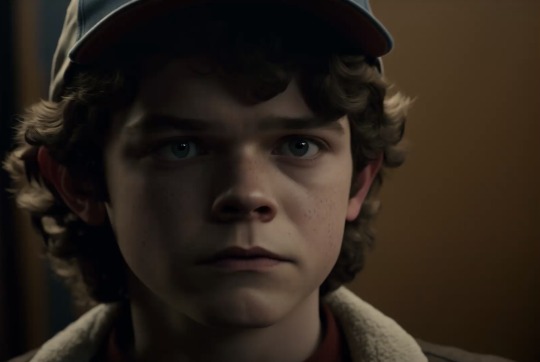
AI Dipper Pines just looks like that one kid from Stranger things.
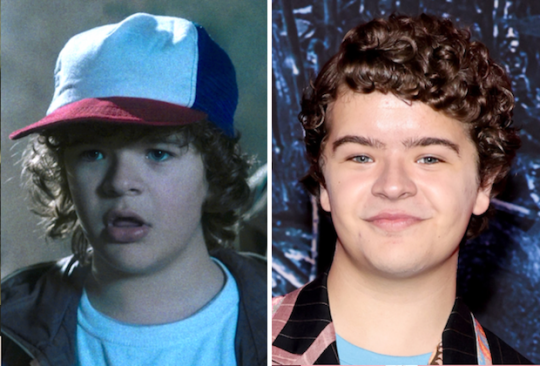
Another issue with AI art is that the texture on “Dipper’s” hair is super soft and fluffy like a cat’s fur. You can see this actor’s curly hair leaves actual gaps and is more wiry and shiny… because it’s human hair. Also, the image from the show has this grainy texture on the skin and cloth, because the show is set in the 80s and cameras weren’t high definition. AI art looks too smooth and buttery because it doesn’t have the human understanding of aesthetics and texture.
He also looks like Frodo, but I don’t know why the AI would pull from a non-80s themed film.
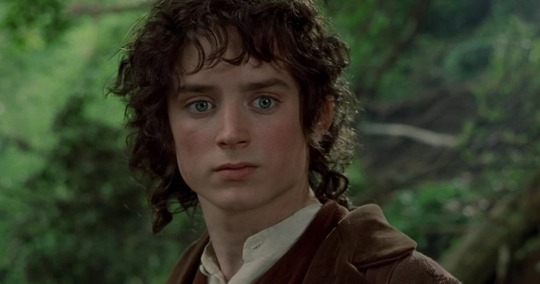
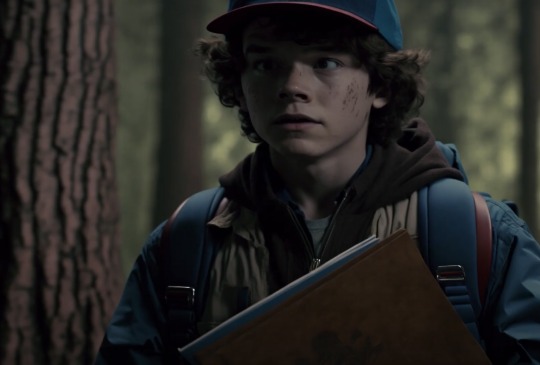
That ain’t Journal 3, thats Diary 9!
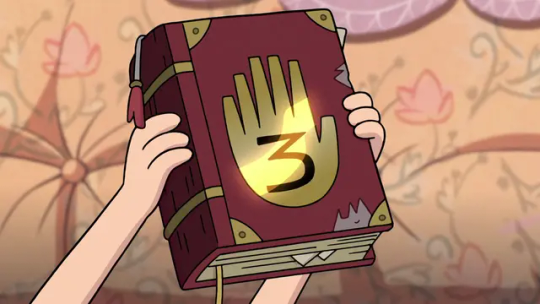
The AI didn’t even make it red! Made it massive and square, but the rest wasn’t allowed.
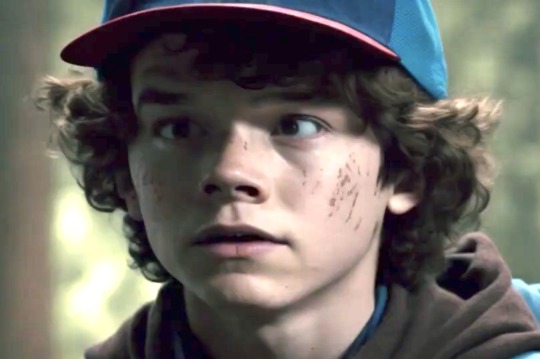
“Dipper” isn’t looking at anything because an AI drew this and had no plan for what he’s supposed to be staring at. Also, one of his nostrils is smaller and his right eyebrow is trying to escape AI purgatory.
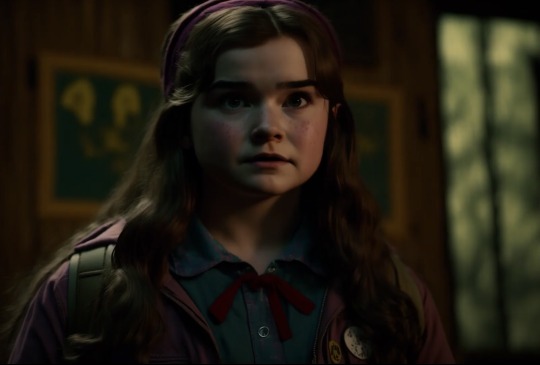
Don’t let ro-bro cook, AI “Mabel” looks like Minecraft Brett Cooper.

Naw, because why is AI Mabel’s jawline stronger than her Twin Brother’s?!
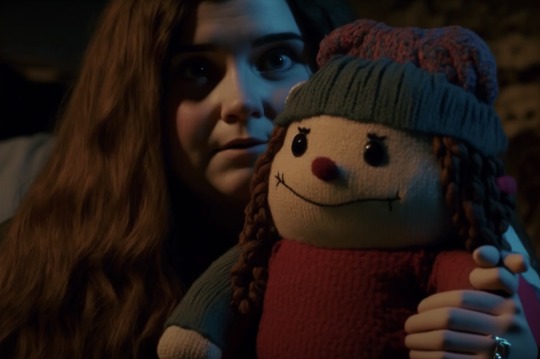
That is NOT Mabel bro, that is a thirty year old married woman on Pinterest!
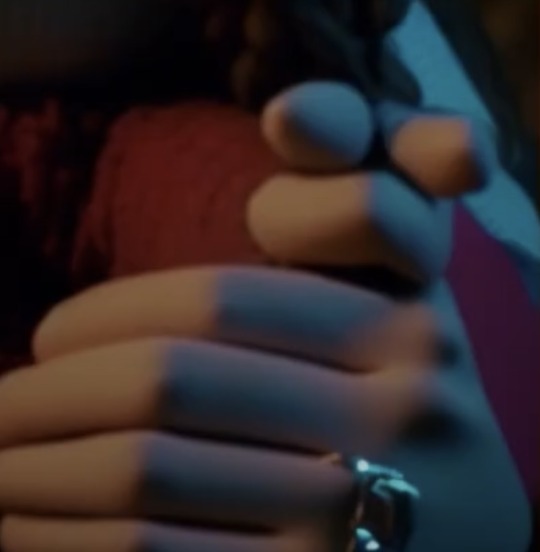
With a sock puppet for a thumb.
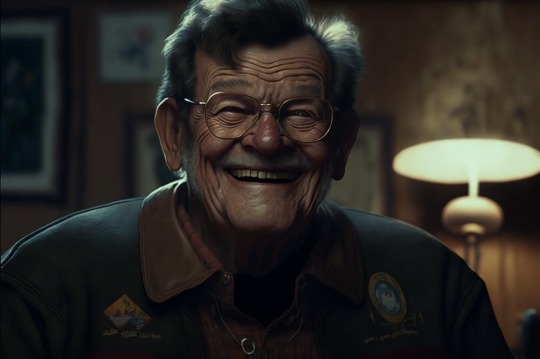
They made Stan into a fusion of Walta White and Stan Lee, which makes sense. But his empty black eye socket and deep wrinkles give me a fight or flight response.
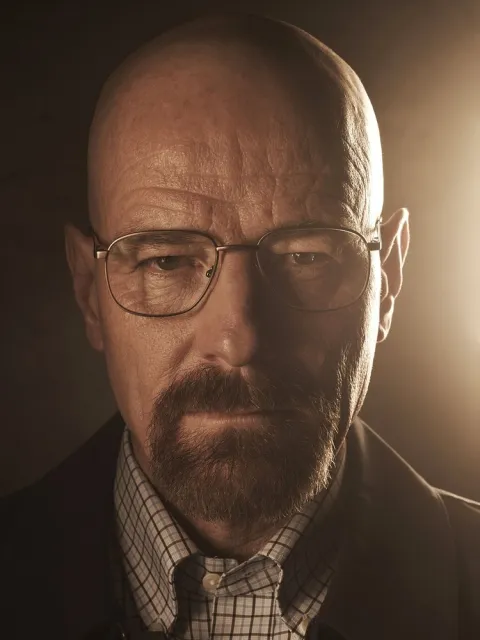
This is what real eyes and wrinkles look like. Once again the text on Stan’s jacket makes no sense [and being AI has no design thought put into it], and the hair looks like cat fur. Walta’s beard is a good example of what “Stan’s” mustache should look like texture wise.

This isn’t Soos, this is Deter Diffin!
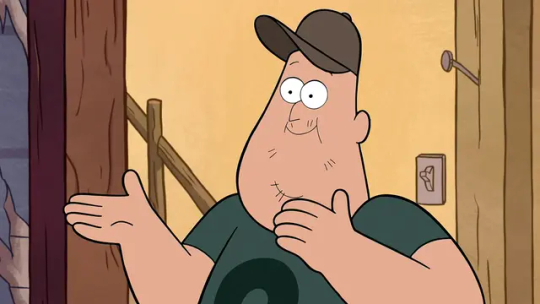
Literally what is the same? Got bro out here looking like a slapstick mobster with 3 offended brain cells.

Look, I know Mabel saved that 8 legged cow, but even she’s wise enough to get stranger danger vibes from bro. AI waddles looks like one of those cursed 3-D Peppa Pig animations from the depths of YouTube.
So this next one, I didn’t even know who it was supposed to be, but the video had timestamps in the description…

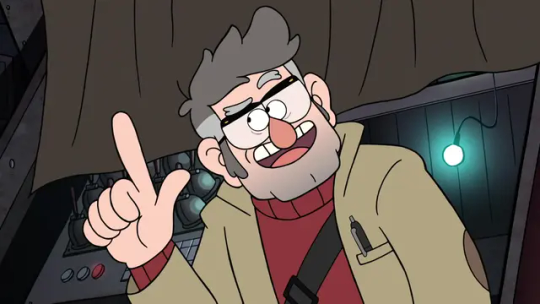
…..
…..
….
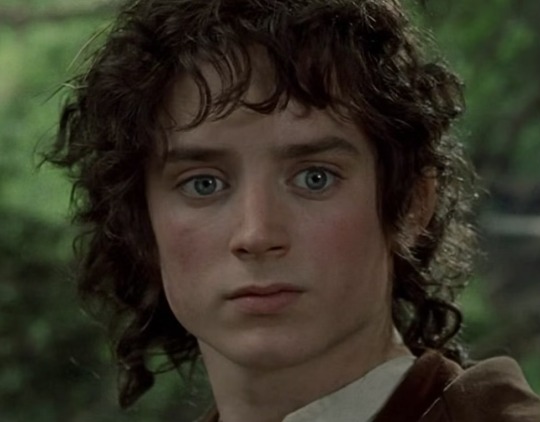



So Ford… isn’t a ginger, first of all. Second of all, he’s literally wearing a baseball cap with a beanie over it. Because that would do anything for you.
Doesn’t look like AI Stan. Doesn’t even look like his painted self, much less the actual Ford. The AI latched onto the author thing and made him do a book signing or something. I promise you, if Ford got the chance to do a book signing he would not look this depressed. Maybe he can feel the disappointment through the screen, IDK.
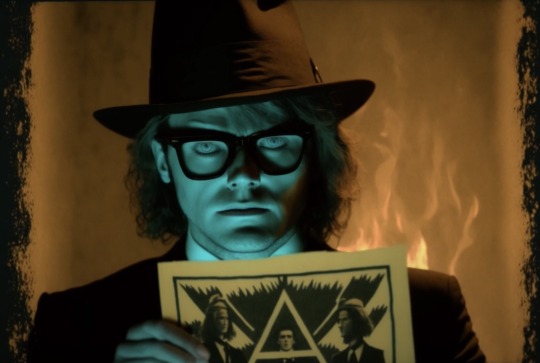
AI Bill Cipher. Apparently. Bro looks like a Demonic Discord Mod who found out his Lemon Demon concert ticket is counterfeit the night of the event. I’m not even going to waste time explaining this one.
So yeah, that was episode one of critiquing/roasting AI art.
#Gravity Falls#design critique#bad design#funny#Crappy adaptation#Memes#gravity falls memes#roasting#New Human Bill design just dropped in Ohio
13 notes
·
View notes
Text

Happy Posthumous Birthday Christopher John Reuel Tolkien (1924 - 2020), who is the third & youngest son of the author J.R.R. Tolkien (1892-1973), as well as the editor of much of his father's posthumously published work. He drew the original maps for his father's #TheLordOfTheRings books, which he signed as C.J.R.T.
From a child, Christopher Tolkien had long been part of the critical audience for his father's fiction, such as listening to his father’s tales of Bilbo Baggins, which were published as #TheHobbit. As a teenager and young adult, he offered a lot of feedback on “The Lord of the Rings” during its 15-year development. He also had the task of interpreting his father's sometimes self-contradictory maps of Middle-earth in order to produce the versions that were used in the books. He re-drew the main map in the late 1970’s to clarify the lettering and correct some errors and omissions.
J.R.R. Tolkien had written a large amount of material connected to the Middle-earth legendarium that was not published during his lifetime. He had originally intended to publish #TheSilmarillion along with “The Lord of the Rings”, and parts of it were in a finished state when he died in 1973; but the project was incomplete.
Once referring to his son Christopher as his "chief critic and collaborator", J.R.R. Tolkien had named Christopher his literary executor in his will. With this authority, Christopher organized the masses of his father's unpublished writings, some of which had been written on odd scraps of paper a half-century earlier. Much of the material was handwritten. Complicating matters, his father would sometimes write a newer draft over a half-erased first draft. Also, it was not uncommon for the names of characters routinely changing between the beginning and ending of the same draft.
Christopher worked on the manuscripts and was able to produce an edition of “The Silmarillion” for publication in 1977. His assistant for part of the work was Guy Gavriel Kay, who became a noted fantasy author himself.
“The Silmarillion” was followed by “Unfinished Tales” in 1980 and “The History of Middle-earth” in 12 volumes between 1983 and 1996. Most of the original source-texts have been made public from which “The Silmarillion” was constructed.
In April 2007, Christopher Tolkien published “The Children of Húrin”, whose story his father had brought to a relatively complete stage between 1951 and 1957 before abandoning it. This was one of J.R.R. Tolkien's earliest stories. Its first version dated back to 1918, and several versions were published in “The Silmarillion”, “Unfinished Tales”, and “The History of Middle-earth”.
“The Children of Húrin” is a synthesis of these and other sources. “Beren and Lúthien” is an editorial work and was published as a stand-alone book in 2017. The next year, “The Fall of Gondolin” was published also as an editorial work. “The Children of Húrin”, “Beren and Lúthien”, and “The Fall of Gondolin” make up the three "Great Tales" of the Elder Days, which J.R.R. Tolkien considered to be the biggest stories of the First Age.
Christopher served as chairman of the Tolkien Estate, Ltd., which was the entity formed to handle the business side of his father's literary legacy. He also served as a trustee of the Tolkien Charitable Trust until his retirement in 2018.
In 2001, Christopher expressed doubts over “The Lord of the Rings” film trilogy that was directed by Peter Jackson. He questioned the viability of a film interpretation that retained the essence of the work, but stressed that this was just his opinion. In 2008, he commenced legal proceedings against New Line Cinema, which he claimed owed his family £80 million in unpaid royalties. In September, 2009, he and New Line reached an undisclosed settlement. He also withdrew his legal objection to “The Hobbit” films. But, in a 2012 interview with “Le Monde”, he criticised the films saying, "They gutted the book, making an action film for 15 to 25-year-olds."
#jrr tolkien#silmarillion#the hobbit#the fall of gondolin#christopher tolkien#beren and luthien#children of hurin#lord of the rings#lotr#middle earth
22 notes
·
View notes
Text
FINAL: Davis (Juror 8) from Twelve Angry Men vs the Bimodal Distribution from statistics
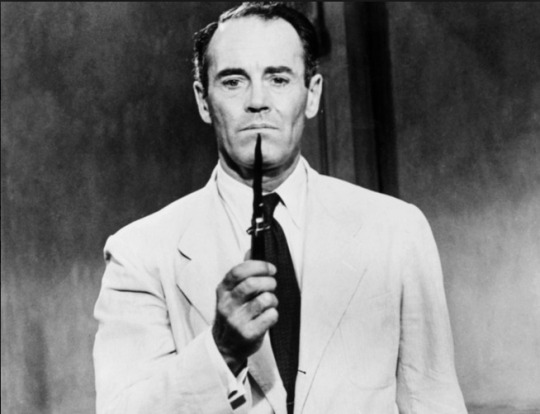

Propaganda under the cut, and it's REALLY worth it:
Davis (Juror 8) (these are all from the single submitter)
a quick lil list babes, and I apologise for all of this in advance:
He's from the fucking film 12 angry men. like, aside from letterbox bootlickers and middle school hass students NO ONE has watched this film let alone care about it, it was made in 1957, is shot almost exclusively in one room and the entire film is just middle aged white men yelling at each other over whether some not white poor kid should be sent to the electric chair. what the fuck.
Henry Fonda, the actor, was 52 years old at the time of filming
Henry Fonda is the father of Jane Fonda, the woman who would revolutionise the 80's with her home workouts and her blindingly neon leg warmers.
His name wasn't revealed until the very end of the film and even then it's just "Davis."
I could honestly give him a lil smooch
He's absolutely not girlypop but he's the ally-iest ally who's ever allied
He's categorised as a "Benevolent Leader" on the Heroes Wiki
instead of the overwhelming urge for me to coddle him like most all other blorbos, i would appreciate it switched
I have a photo of him inside my saxophone case and sometimes i forget he's in there, then he creeps into my saxophone bell and when I play it he shoots out like a ballistic missile
Dude, on ao3 there's more fanfiction about the real life 80's British punk band The Clash than the entire film of 12 angry men, let alone Davis (80 fics come up under the clash, while 10 come up for 12 angry men)
I have a counter, and I've watched 12 Angry men a total of 145 times. The figure is up on my wall in tallies. whenever the number goes up, I like to watch it in 5's so then I can put another full group of tallies on my wall.
I have incredibly detailed stories about how Davis would boogie down to ringo starr's solo career, and they're written within the margins of a book called Tobruk written by Peter Fitzsimons. The only reason I reread that book is to wonder at my elaborate works of fiction
My HASS teacher was the one to introduce me to 12 Angry Men as he played it for the entire class. He gave us a set of questions to complete on the film and a few Law based questions as a little treat, and he expected it to be handed in the next day. What he didn't expect was an 11 page monster of a response that included social commentary, 4 paragraphs dissecting the character of Davis alone, deeply discussed comparisons between the landscapes of politics and law in the 50's to the present, and basically an entire point-for-point summarisation of the film, completed with obscure quotes from Truman, Eisenhower, Nixon and Presley (Elvis). He presented the printed masterpiece in front of the entire class to shame me.
After class he explained how his favourite Juror would either be 6 or 5, because 6 seems like a big dumb teddybear and he just liked 5. I explained how I liked Davis because he didn't want to send a kid to die, then he told me how Davis would make a good cowboy (at this point in time I was unaware of Henry Fonda's role in Once Upon A Time in The West) and I proceeded to go home and write a 3 part orchestral composition that I could pretend would play as the soundtrack to Juror 8: A Cowboy's Tale or something like that
I had started to make an animation meme starring Davis but only gave up when photoshop literally deleted itself from my laptop
I didn't even hear that Juror 8's name was Davis when I first watched it in class, somehow I only heard it on my 6th rewatch but when I did I literally got so excited I literally got winded and cried a little bit, I had to take a panadol because I got so lightheaded
I have learned the musical motif that plays throughout the film on saxophone, clarinet, recorder, guitar, bass, ukulele, piano and trumpet
I have visions of him
One of Davis' 3 children HAS to be gay and nothing can convince me otherwise
honest to god I'd be a home wrecker if it came to him
I quote not only Davis but the film a lot, and sometimes in the dead silence of all my friends I go on about how the old man couldn't have possibly made it to the door in such a short amount of time to see the kid running down the stairs (because the old man has a limp, and Davis proved it my limping around the room, which I have to say was incredibly attractive of him)
He's literally an architect
I once had a dream where Davis was in my bass guitar case when I opened it, and i literally just picked him up and started picking him like a bass guitar until I tried to play a full chord and he bit the hand that was meant to be on the fretboard. I dropped him and he fell on his ass, and when I said "what the hell dude what was that for" he said bass chords are lowkey ugly to listen to, and since then i don't like playing bass chords because now they're lowkey ugly to listen to. before this ordeal, i enjoyed them, but alas
i once got my romantic partner to write me a davis x reader fanfiction as a birthday present
my parents believe that Davis is my first celebrity crush, and while they're actually wrong it's still actually so embarrassing they believe that because OH MY GOD it's literally JUROR 8 FROM 12 ANGRY MEN
I've attempted slam poetry about him
I've eaten a paper printed full a4 size photo of his hand
I would also not mind him to be literally my father, but given the rest of the things I've just said about him that's really weird and I recognise that
the Bimodal Distribution
First of all, it's a math concept. that is already pretty bizarre of a thing to be blorbo-ifying. Second of all, I don't know any calculus, and I don't consider myself a math person (because I hate arithmetic), but I really like this guy for some reason. I mean this graph clearly holds the secrets of the universe. don't you just want to l o o k at it . like you could solve everything in the world with that boy
17 notes
·
View notes
Text
Billy Lenz headcanons 2
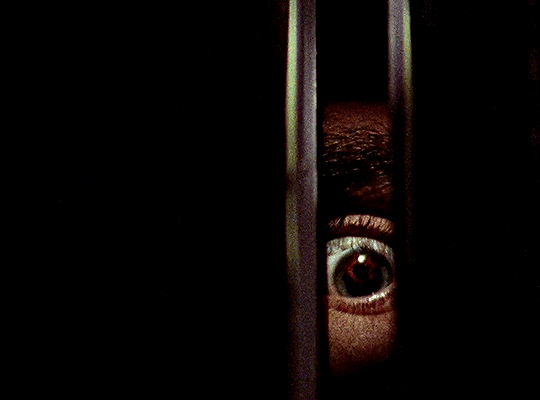
Part two baby let's go
TW: child abuse, animal death again :( though I don't really get into the details of either of it
Grew up in a kind of suburban/rural like area, not totally isolated but definitely a bit remote, so a lot of things that happened in the Lenz household went unnoticed by the wider community
Lived close by to a pig farm as a child, hearing their grunts and squeals all day and all night. He quickly adopted the sounds, and now grunting and squealing and snorting are a stim to him. Though, because of this he often got compared to pigs by his family as a child :( he did sometimes sneak away to the pig farm to look at the pigs to get away from his house
Had a crooked broken nose. He either got it broken by one of his parents or Agnes broke it in self defense
As stated in the last part, he loves movies, and one of his absolute favorite ones is the shining. Jack Nicholson is one of his favorite actors, and he watched most of his filmography- exept one flew over the cuckoo's nest. He can't handle that one, it's too real for him
Likes those adult oriented animated movies that came out during the 70's-80's like Fritz the cat, Fantastic planet, Rock and rule, and so on. He also very much enjoys who framed Roger rabbit and cool world, though not really for their technical breakthroughs (perv)
I can see him also appreciating eastern block animated films if he ever got his hands on them, like Russian fairy tale animated films and early Hungarian folk tales, János vitéz etc.
Last unicorn enjoyer but prefers the book to the animated movie (though he enjoys both)
Doesn't really like Disney animated movies though (exept for Roger rabbit). The ones that came out during his adulthood were too "kiddie" for his tastes, and the ones from his childhood trigger him greatly
Has Italian heritage
Hates hippies, though likes a couple of bands that can be considered to make hippie/stoner music like Pink Floyd and the Doors
Yes he relates to Pink from the acclaimed concept album/rock opera movie Pink Floyd's The Wall why do you ask
Every weed is scary weed to him, don't let this man bake
Cat's are his favorite animal, aside from pigs, and he would feed the local stray cats as a child
Would honestly be catkin in a modern au
Garfield is his favorite mediocre but cute Saturday morning comic strip <3 he relates to Jon a lot
Doesn't like children, they freak him out, he would never want to have children and that's for the best
Has an appreciation for naive/amateur/outsider art, and he himself does make his own collages and drawings from time to time, whenever he's mentally stable enough to do that. His works are crude, both technically and thematically, and there is a very morbid quality to them. One of his great inspirations is Henry Darger
Has hoarder tendencies
Loves soft things, like blankets, pillows and plushies. His nest in the attic is like the most comfortable pillow fort there is
Yes the plushies are stolen directly from children
Honestly has his own collection of small, tinny , insignificant shinny things he found/stole. If he ever gets his own place his house would look like Howl Movingcastles room just more... Dirty and covered in cat hair
Liked to lay out all the things he stole from the girls in the sorority house on the attic floor, and admire his spoils from time to time
Yes he is a panty snatcher why do you ask
Doesn't like people staring/looking at him, though he himself has a staring problem
Is afraid of dogs, he got bitten by a stray dog one time when he ran away from home when he was just three years old. A stranger who just so happened to be passing by saw what was happening and defended him, killing the dog in the process. Then he took Billy right back to his family home, like any good Samaritan would. Sometimes Billy's nightmares have bloody, gaping black dogs in them.
#billy lenz#parental abuse#tw abuse#child abuse#animal death#Ufff I projected for his media preferences so much ugh#Let me know if i should tag anything else#Billy Lenz headcanons
53 notes
·
View notes
Text

Dickey Betts
Guitarist, singer and founding member of the Allman Brothers Band best known for writing their 1973 hit Ramblin’ Man
Dickey Betts, who has died aged 80, was a founder member of the Allman Brothers Band, one of the most influential US “southern rock” groups of the 1970s. The hard-living outfit blazed out of Jacksonville, Florida, in 1969 with a mix of rock, blues, country and jazz that defined the genre, also influencing artists such as Lynyrd Skynyrd, ZZ Top, the Black Crowes and Kid Rock. They scored several platinum and gold albums and were inducted into the Rock & Roll Hall of Fame.
Although the six-piece band was ostensibly led by the blond- haired Allman brothers, Duane and Gregg (guitar and keyboards/vocals respectively), as joint lead guitarist, singer and main songwriter Betts played a crucial role. A larger than life character with his cowboy hats, long moustache and gunslinger good looks, Betts wrote many of the band’s best loved songs, including Jessica, Blue Sky and the 1973 US No 2 smash Ramblin’ Man, inspired by life on the road.
The signature duelling of Betts’s and Duane Allman’s lead guitars rewrote the rule book of how twin guitarists play together - previously one had played lead and the other rhythm. The band’s huge fanbase included President Jimmy Carter, and in 2020 Betts even received the rare accolade of a mention in a Bob Dylan song, when Murder Most Foul contained the line “Play Oscar Peterson, play Stan Getz/Play Blue Sky, play Dickey Betts.”
He was also the inspiration for the rock star character played by Billy Crudup in the former rock journalist Cameron Crowe’s film Almost Famous (2000), the director having been drawn to Betts’s aura of “possible danger and playful recklessness behind his eyes”.
Betts was born in West Palm Beach, Florida, one of the three children of Harold, a carpenter, and his wife, Sarah (nee Brinson), who wrote poetry and played the cornet in a Salvation Army band. Although his father was also a keen fiddler, Dickey’s first instrument was the ukelele, which he started playing aged five, later graduating to the mandolin and the banjo.
He was at West Gate elementary school when he wrote his first song, Seven Years With Pamela, about his sister. He then attended various West Palm Beach schools until seventh grade, dropping out of high school when he was 16, by which time his pursuits included carpentry, hunting and listening to the Grand Ole Opry on the family radio.
Hearing Chuck Berry’s Maybellene in his mid-teens prompted another switch of instrument, as he “started realising that girls like guitars”. He dropped out of high school aged 16 to tour the US with a travelling circus in his first band, the Swinging Saints, but was playing in Second Coming with the bassist Berry Oakley when Duane Allman invited both men to join his new group.
The lineup was completed by the drummer Butch Trucks and – unusually in white-dominated 60s southern rock - a black second drummer, James Lee Johnson, who had previously played with Otis Redding and Percy Sledge.
Although sales of their first two albums were sluggish, Duane Allman’s appearance on Eric Clapton’s 1970 album Layla and Other Assorted Love Songs – which included the classic hit Layla – boosted the heavy-touring Allman Brothers Band’s rising profile. Their 1971 live album At Fillmore East sold 1m copies.
After Duane Allman and Oakley were killed in motorcycle accidents in 1971 and 1972 respectively, Betts led a rejigged lineup. The 1973 album Brothers and Sisters – featuring Ramblin’ Man and the instrumental Jessica, later the theme to the television motoring show Top Gear – topped the US charts for five weeks, while 1975’s Win, Lose Or Draw went into the Top five. By then the band were succumbing to a familiar music industry cocktail of success, drugs, alcohol and feuding.
Betts and Gregg Allman both made solo albums, before Betts felt betrayed when the latter testified against the band’s road manager in a 1976 drugs case and refused to work with him again. Nevertheless, they regrouped in 1978, splitting again in 1982.
A second comeback in 1989 proved more enduring, although in 2000 Betts was fired over his drinking. That third spell in the band had been dogged by alcohol and drug abuse, lawsuits and arrests, and in 1996 he was charged with aggravated domestic assault after pointing a handgun at his fifth wife, Donna (nee Stearns), whom he had married in 1989. The charges were dropped after Betts agreed to enter rehab.
In his later years he returned with his own Dickey Betts Band and played in the band Great Southern with his son Duane. True to his ramblin’ man credentials, he remained on the road to the last, even after brain surgery following a 2018 fall at home, and he released live albums well into his 70s.
He is survived by Donna and his children, Kimberly, Christy, Jessica and Duane.
🔔 Forrest Richard Betts, musician, singer and songwriter, born 12 December 1943; died 18 April 2024
Daily inspiration. Discover more photos at Just for Books…?
8 notes
·
View notes
Text
I watched Damsel last night and oh my god, loved it!!! The visuals and writing kinda brought back those Game of Thrones glory days feels and I love the trope of woman who is wearing nice dress gradually disfigures it as she has to survive and become a bad ass, and the bond with the dragon !!! The themes about the destructive nature of patriarchy and classism !!!
I did have a couple of notes, but these are things that I don't know would've gotten a good answer/resolution within a two hour or so movie run time but I think they're interesting nonetheless;
Like okay, am I the only person who kinda felt bad for Prince Henry in a way? I can't have been the only one. I'm not saying he in any way deserves to 'get the girl' in the end or should have saved her or even have had a different ending, but I sympathized for him a little regardless. He did, of course, participate in his family's ritual sacrifice of at least two girls, but the impression is very much given that he has been taught to do little else than what his mother and kingdom bids him to do. He clearly doesn't want to be part of this in any way, and does of course end up pleading Flora's case (not that this absolves him, he was quick enough to dismiss those other sacrifices when suggesting he wanted to marry Elodie anyway lmaoo) and when he does his mother bitingly calls him 'weak'. I just have to wonder how he was groomed growing up to one day do this, how often he must have been told that it was his 'duty' and 'for the good of the kingdom' and thought he was prepared to be STRONG like his forefathers ('strong' here meaning willing to sacrifice innocent women, of course) but when the time came he wasn't as ready as he thought he'd be or, really, at all. In fact, I'm not really arguing his ending here because I think it's significant that he's consumed in the dragon's flame by the end, the result of his male ancestor's entitlement and violence. I think there's something being said here about how the patriarchy consumes and destroys the men within it, too maybe, like Elodie's father's death. Idk I guess I'm just trying to say I felt bad for him despite everything lmao, which begs the question of what he might have done differently to save himself from the inevitable end? Or if he even could?
I'm a little shocked there wasn't more to the healing glow worms lmao. This is probably the only place in the film I feel like there's a weakness or a hole, because I was thinking that she'd use them to restore the dragon's children to life (I mean, they presumably restored the dragon's EYE so like??? maybe it's possible??) and that would break the curse and restore all the women who died to life as well, because I thought their spirits were being contained in the glow worms!!! I really thought all that was going on! I think it should have been tbh, imagine all those women getting a second chance at life and going back with Elodie and dragon lady to her land or whatever! Maybe a little saccharine and convenient but it's what I wanted lol
Anyway those are my sort of outlier weird thoughts, on the whole it's a very good film and reminds me a lot of films from the 80's-early 00's, it's cool to see a kind of return to that style of unironic fantasy adventure. Highly recommend, 11/10 stars
10 notes
·
View notes
Text
I don't think it's fair to say that people only like WFA if they prefer the fanon, idealized versions of Batfam characters.
More rambling about comics and fandom under the cut, but the tldr version is that a) sometimes people want slice-of-life stuff for their favorite characters and b) if I have to put up with Dark and Gritty, unnaturally-prepared, child-slapping Batman, fans of that guy can put up with some light and fluffy manor hijinks like WFA.
Yes, there is an active and vocal portion of DC fandom that wants things from canon that will never happen. Partially that's because fandoms typically always want things from canon that would never happen. Teen Wolf and SPN fans want a coherent narrative that actually addresses the themes and character choices portrayed on the show. CA:TWS fans want to dig their claws into Steve and Bucky's relationship AND the US Military Industrial Complex in a way that the MCU never will. Stranger Things fans want some honest-to-God character development. And part of what I see in DC fandom is similar: what do fans of works where the characters are constantly emotionally and physically stressed want from their fanworks? Hurt/COMFORT and/or curtain!fic, in my experience.
And yes, partially that's because there seems to be a large portion of DC fandom that have not read a significant portion of the comics.* And/or watched the tv show(s). And/or watched the movie(s). And fanon builds on fanon until suddenly Tim Drake is crying because no one has ever hugged him, Cas/Steph/Duke are Sir Not Appearing in this Film, Jason is Gotham's #1 feminist, Dick is a golden retriever in human form, Damain is baby™, and Bruce would NEVER endanger his children by letting them go out and fight crime. But that happens in every fandom, to some extent.
I think it's perhaps more pronounced in DC because it's a comics fandom without any one unifying canon that most people are drawing from. For good or for ill, the Marvel fandom is typically able to circle the wagons around the MCU, with people incorporating various aspects of the 616 or Fraction's Hawkeye or whatever Spider-Man movie's come out most recently. DC doesn't have that. There's 80+ years of comics, including reboots that are supposed to make things less confusing (but YMMV on the effectiveness of that), and characterizations that change with the times; CW live-action TV shows; the Snyder-verse live-action movies; the NON-Snyder-verse live-action movies; the DCAU or Dini-verse/Timm-verse; the DC animated movies that are generally adaptations of comic storylines; the 2005 Teen Titans animated show; the 2010 Young Justice animated show; TITANS; The Batman (the animated show!); The Batman (R. Battinson!); Gotham; Smallville; Lois and Clark; etc, etc, etc.
I came to comics from the DCAU. I watched Smallville far past the point where any reasonable person would have quit. When I first watched 1978's Superman, I was confused that John Kent was dead, because he wasn't in the canons I was most familiar with. It's obviously not a 1:1 comparison, but I do think the question of "what do you want from canon" depends on what canon you're talking about.
And I don't mean to sound like I'm coming down on the side of people who are only familiar with fanon trying to argue they know the characters better than people who've actually consumed canon. But I do think DC being such a broad canon with no unifying property makes it a difficult discussion to have unless you start off by identifying the parameters.
ANYWAY, the point I've been dancing around is that there's enough canon that when someone says "MY Batman would never do that", they might be talking about their fanon or they might be talking about animated show #903 or the Tim Burton movies or whatever. Also, I had to put up with Nolan!Batman being the Batman du jour for like 10 years. It's WAFF WFA Batman's turn to be in the spotlight for a hot minute.
(Also, as greater minds than mine have pointed out, comics are, in general, a collective mythology of the modern era. And if you've ever tried to look up the One True Version of a myth, you'll know it's a frustrating exercise in futility)
*Of course, there's also a question of "what counts as a significant portion of the comics". Someone semi-recently ran a poll of "would you say you've read a lot of comics" and I was torn because I've read a lot, but in fits and spurts over the last 20 years, based on what was available at my local library or bookstore, and with nowhere near the focused attention that others have managed.
#tbh the thing I find most disconcerting about WFA is that I feel like I've read some of these comics as fics or tumblr posts before#and I don't like that#but anyway#wfa's not my favorite thing dc's ever done#but at least it's not more Court of Owls shit#meta#meta (batman)#meta (dc comics)#fandom#criticism of fandom#i guess#wayne family adventures#dc comics#dcu#dcau#smallville#one of the joys and pains of comics is that everyone has a different entry point#it's just like#how you came to the sherlock holmes fandom generally greatly affects how you interpret the character#waff = warm and fluffy feelings#btdubbs#i have so many things i should be doing instead of this#yuleshootureye.txt
14 notes
·
View notes